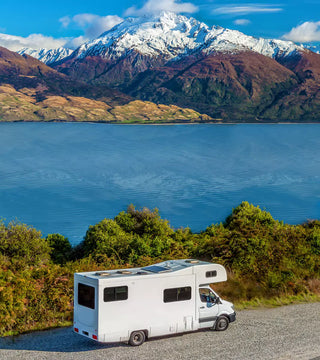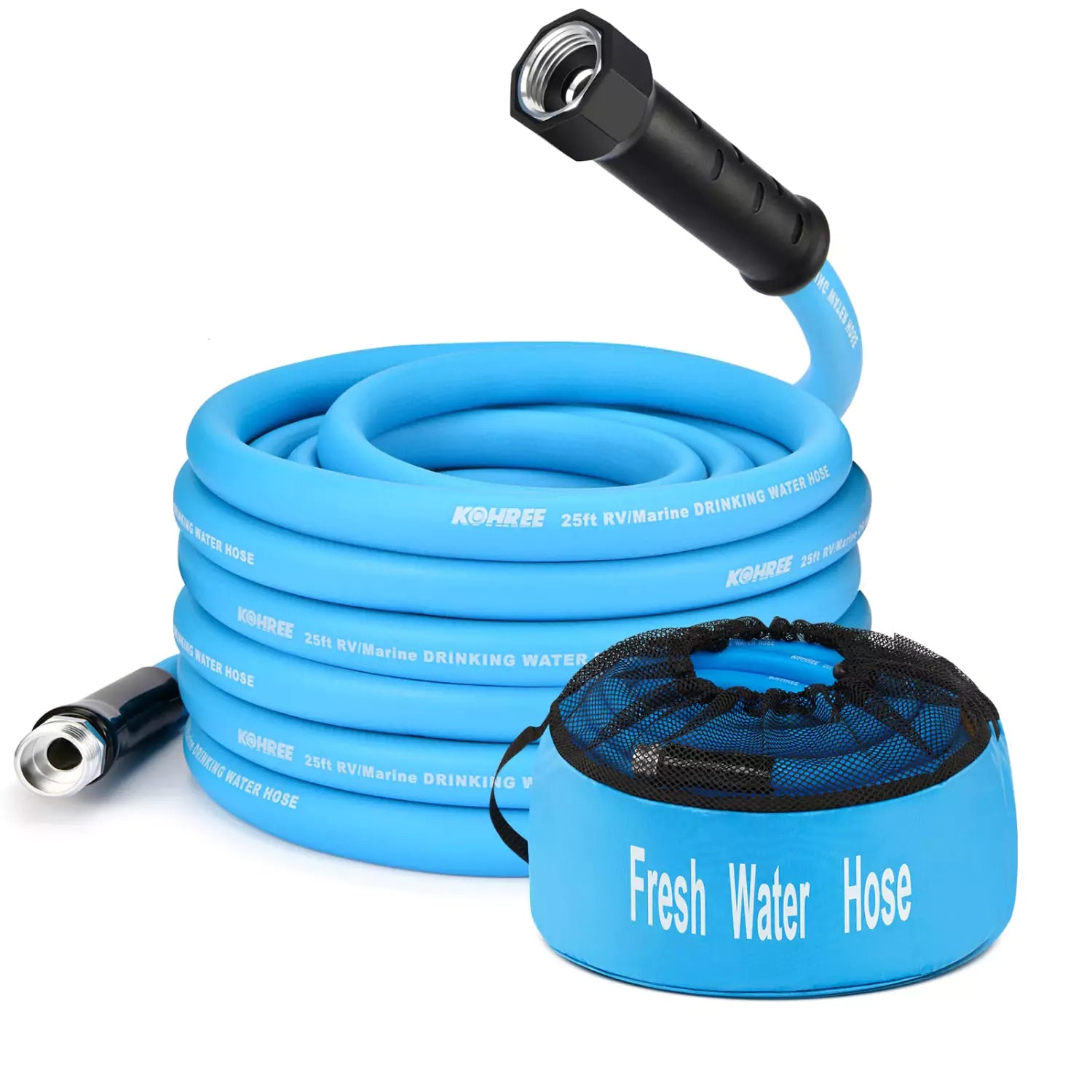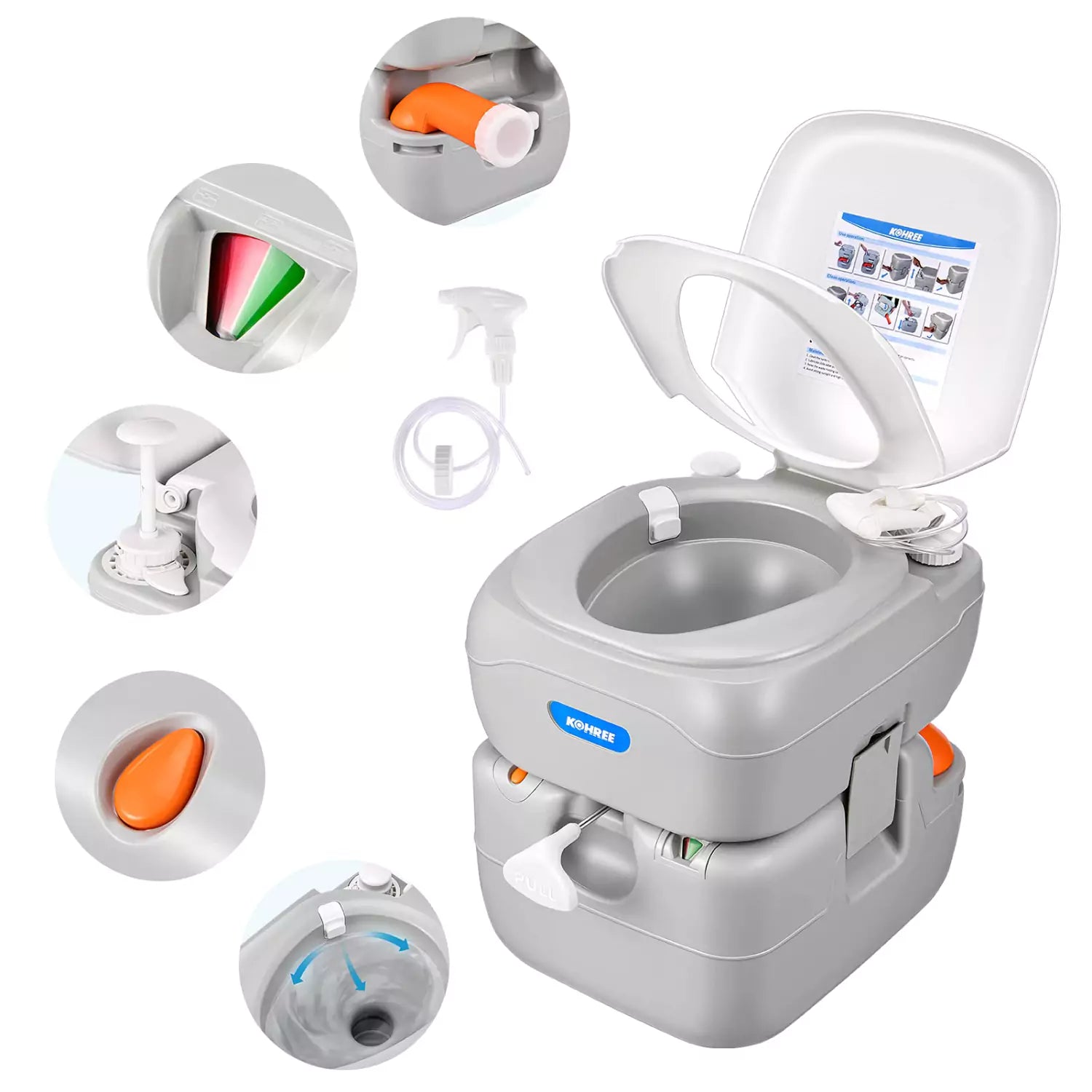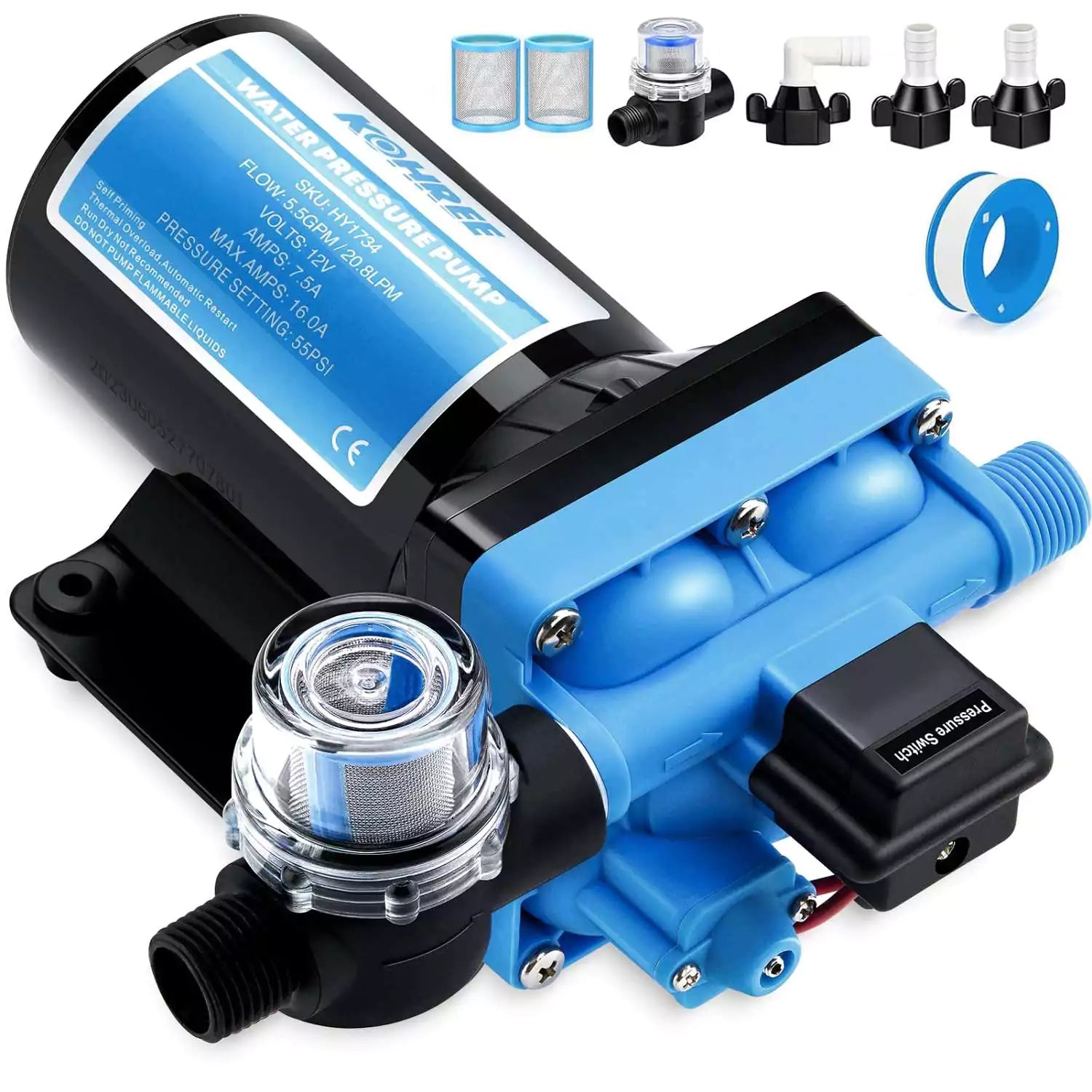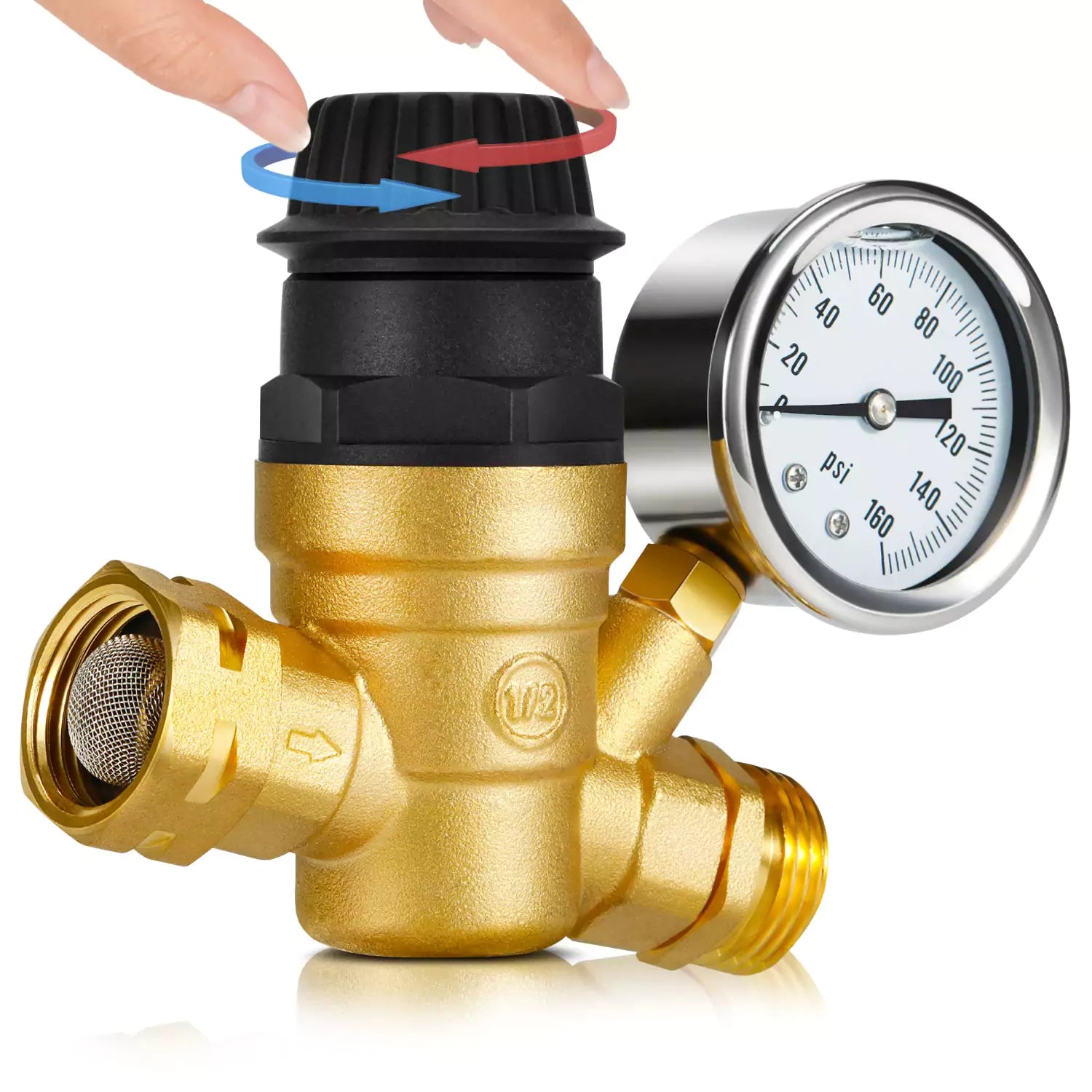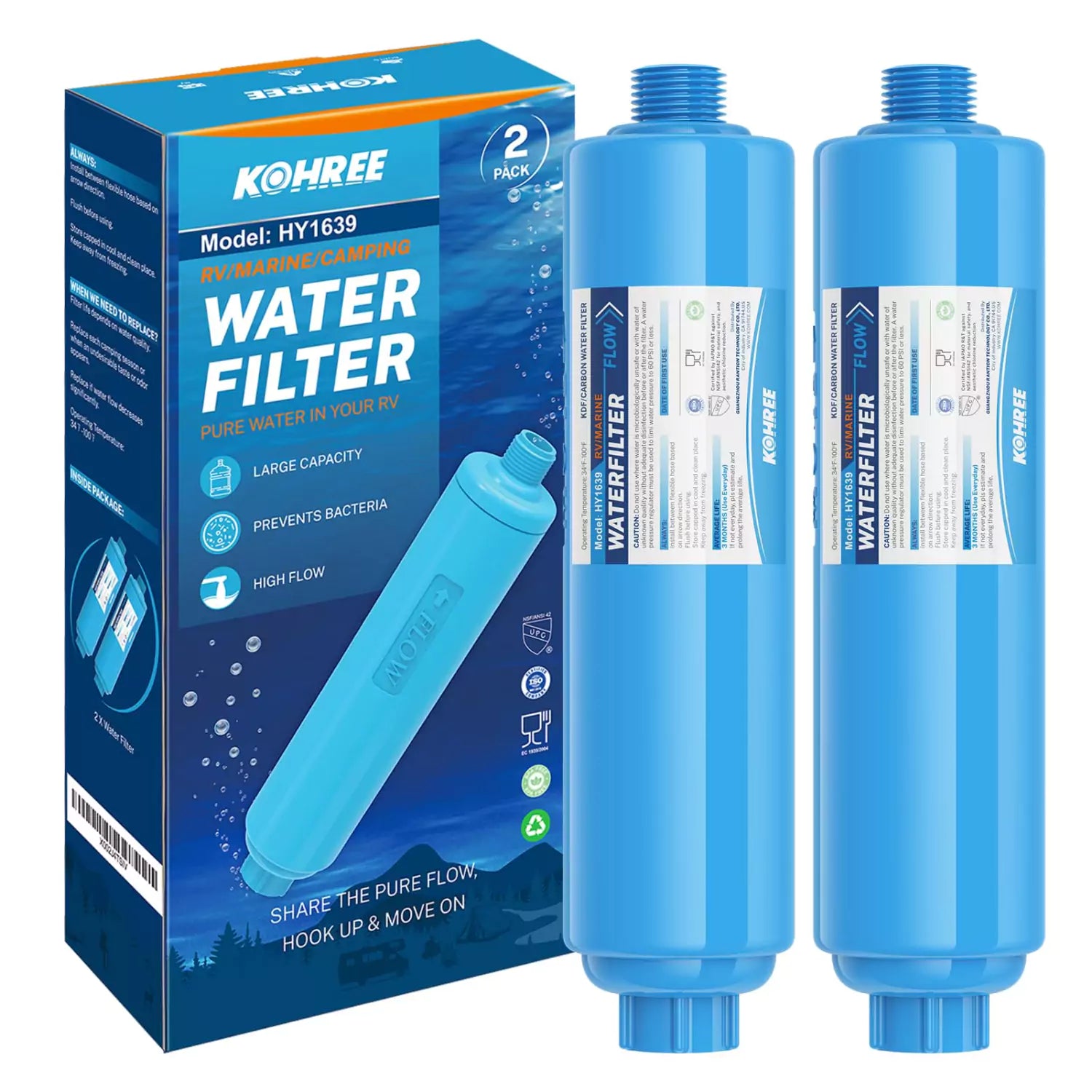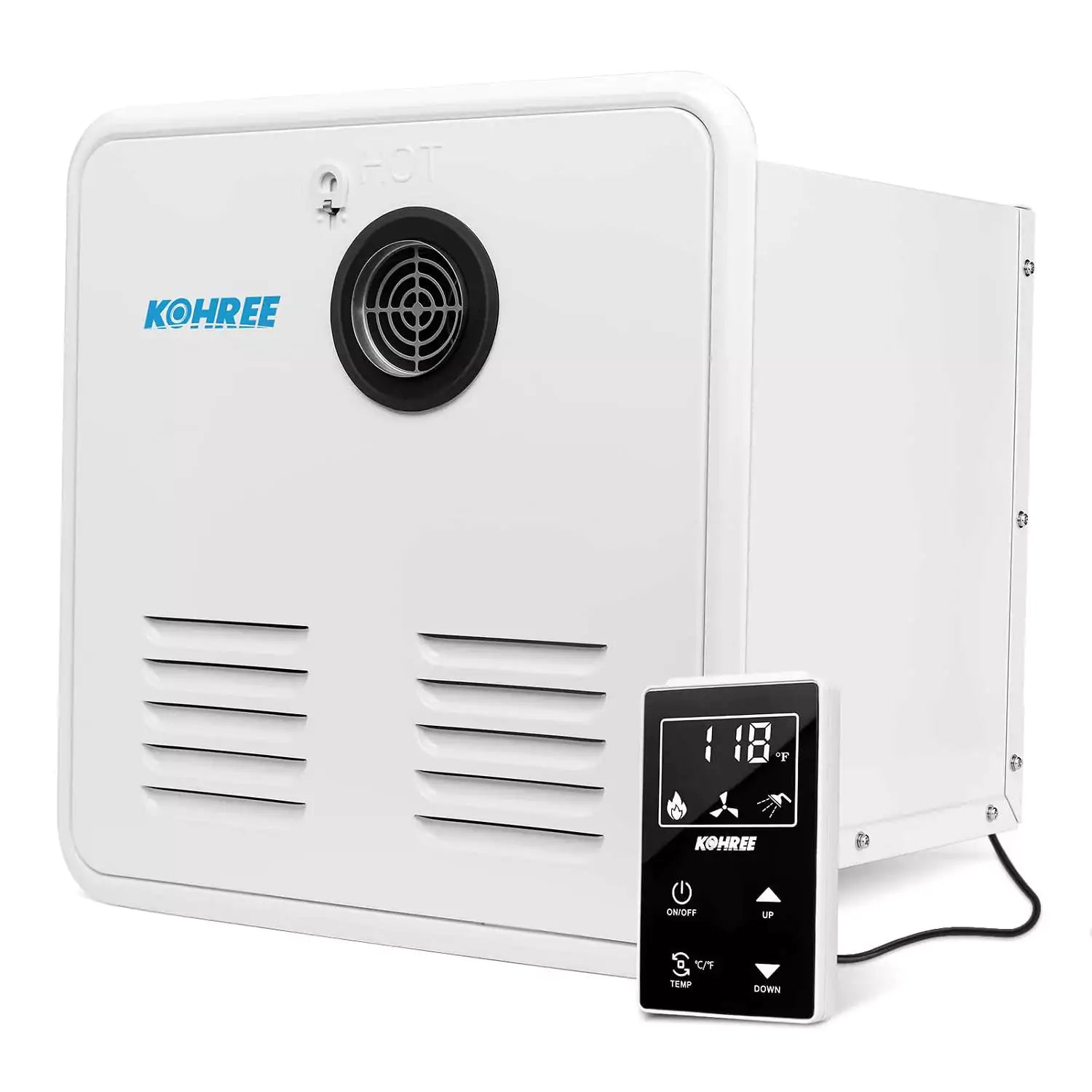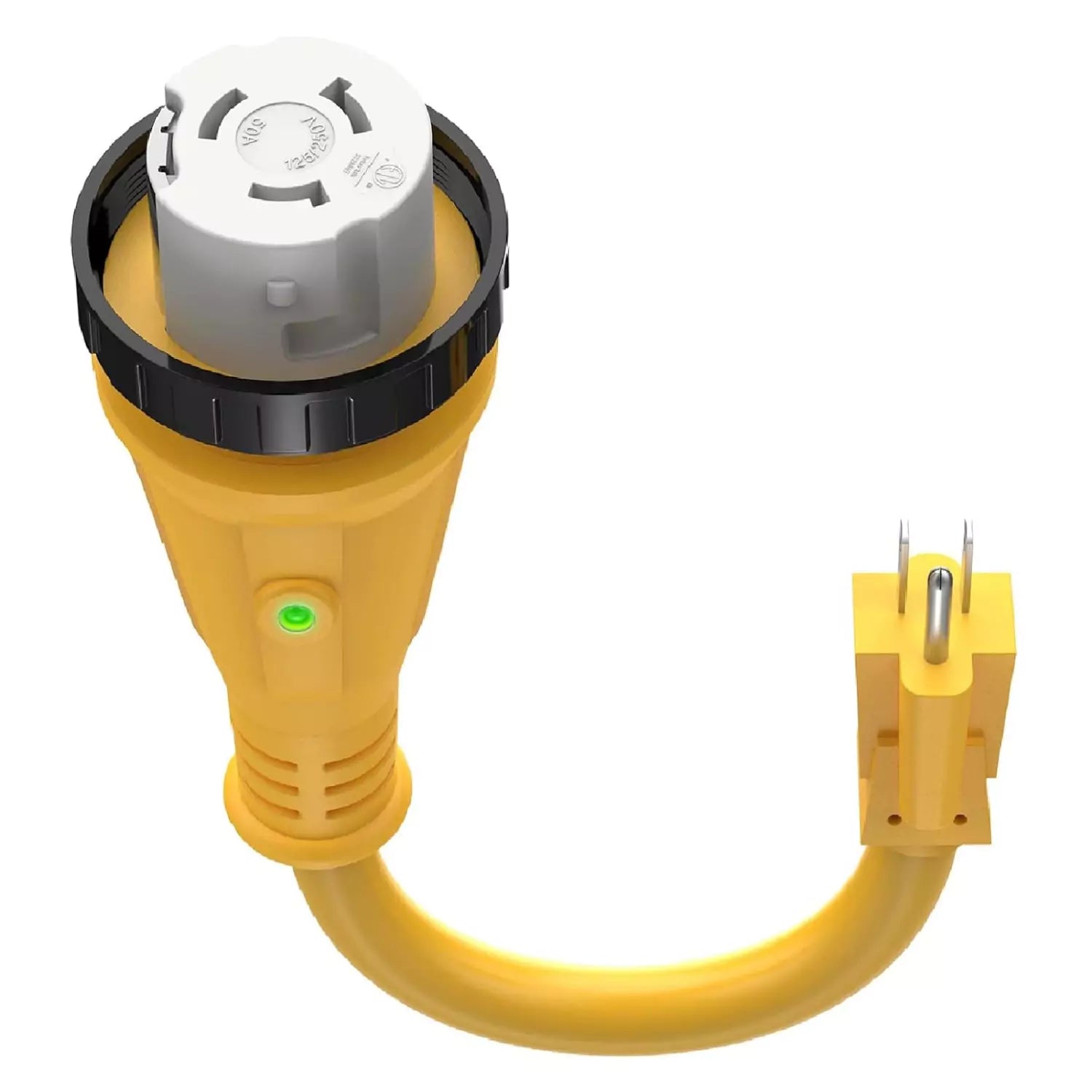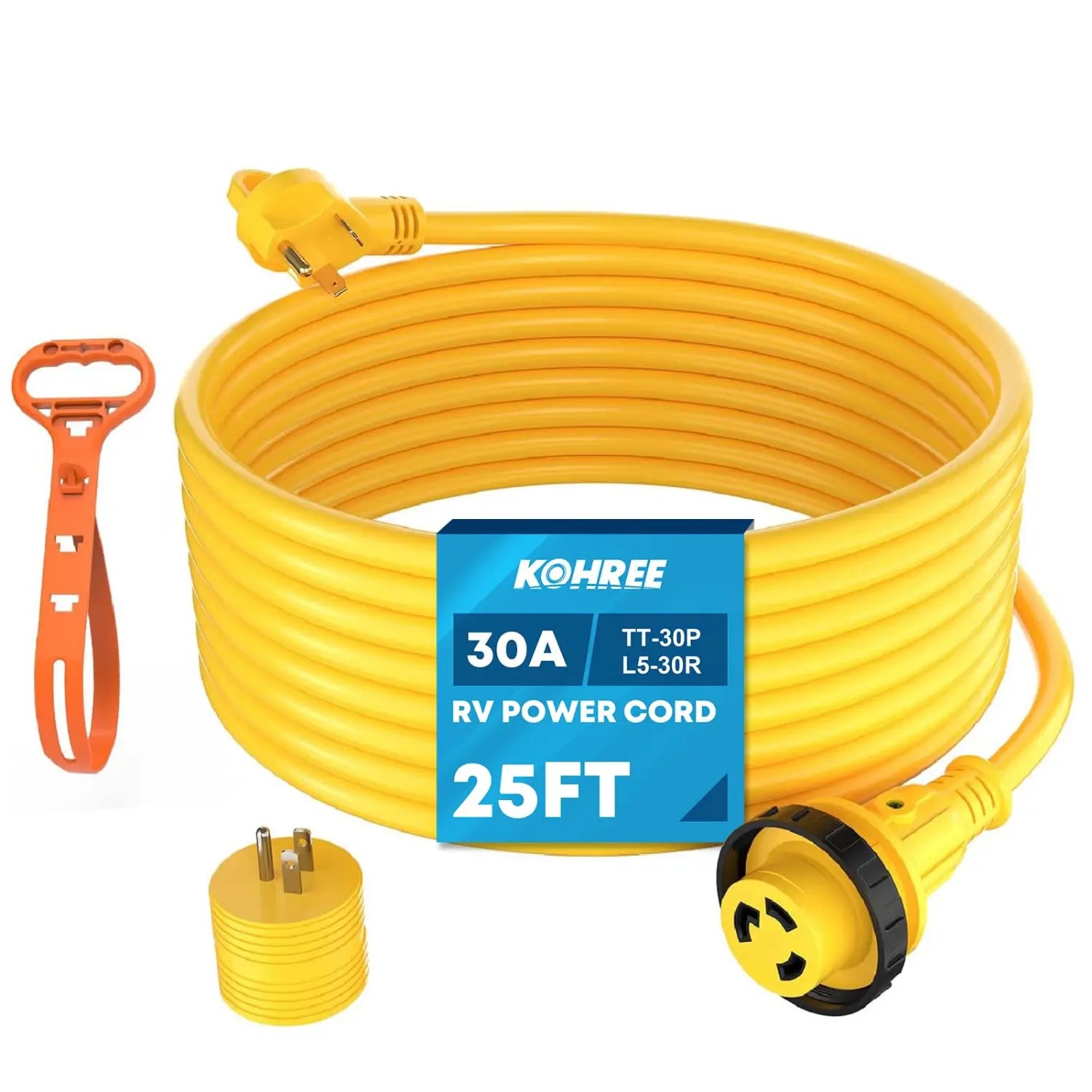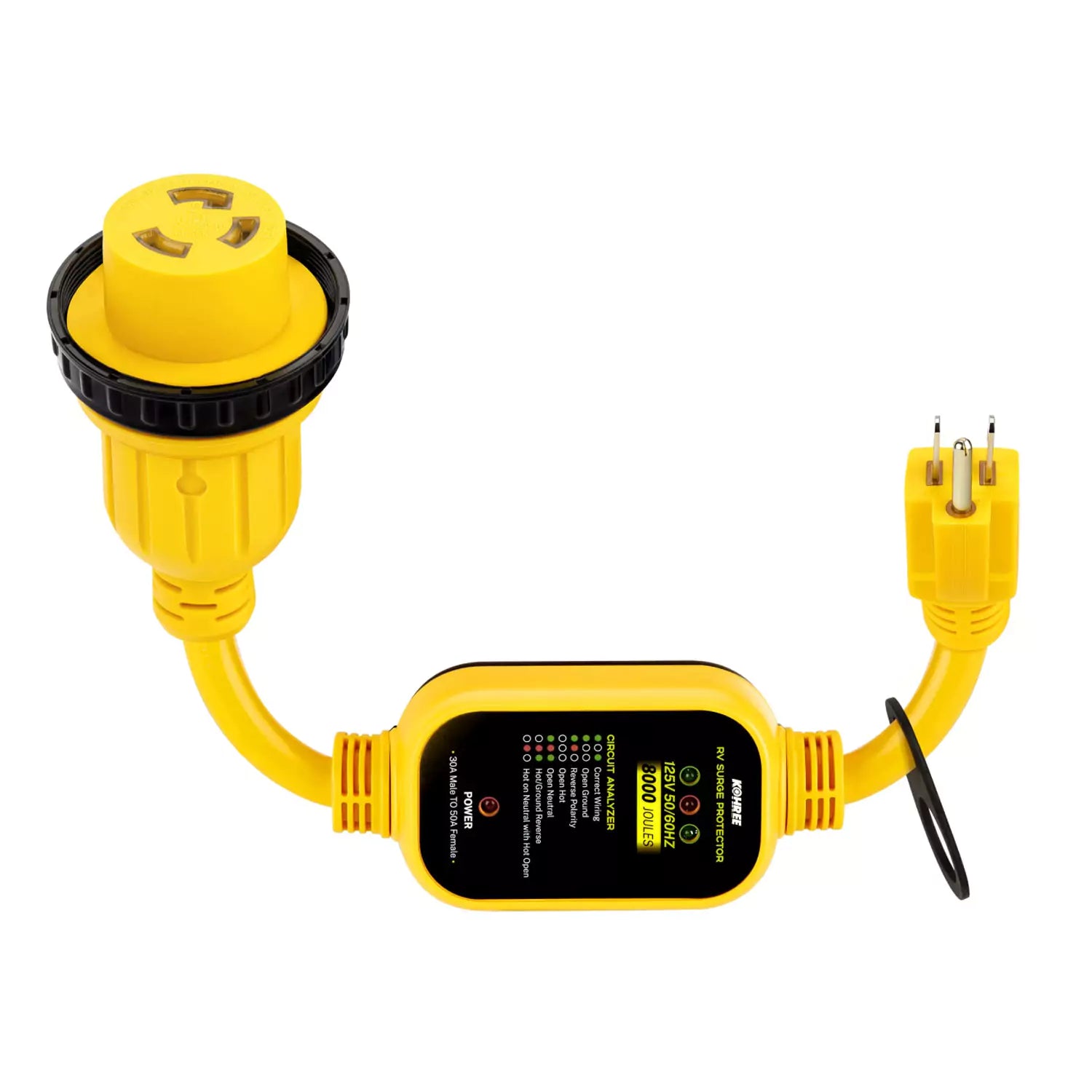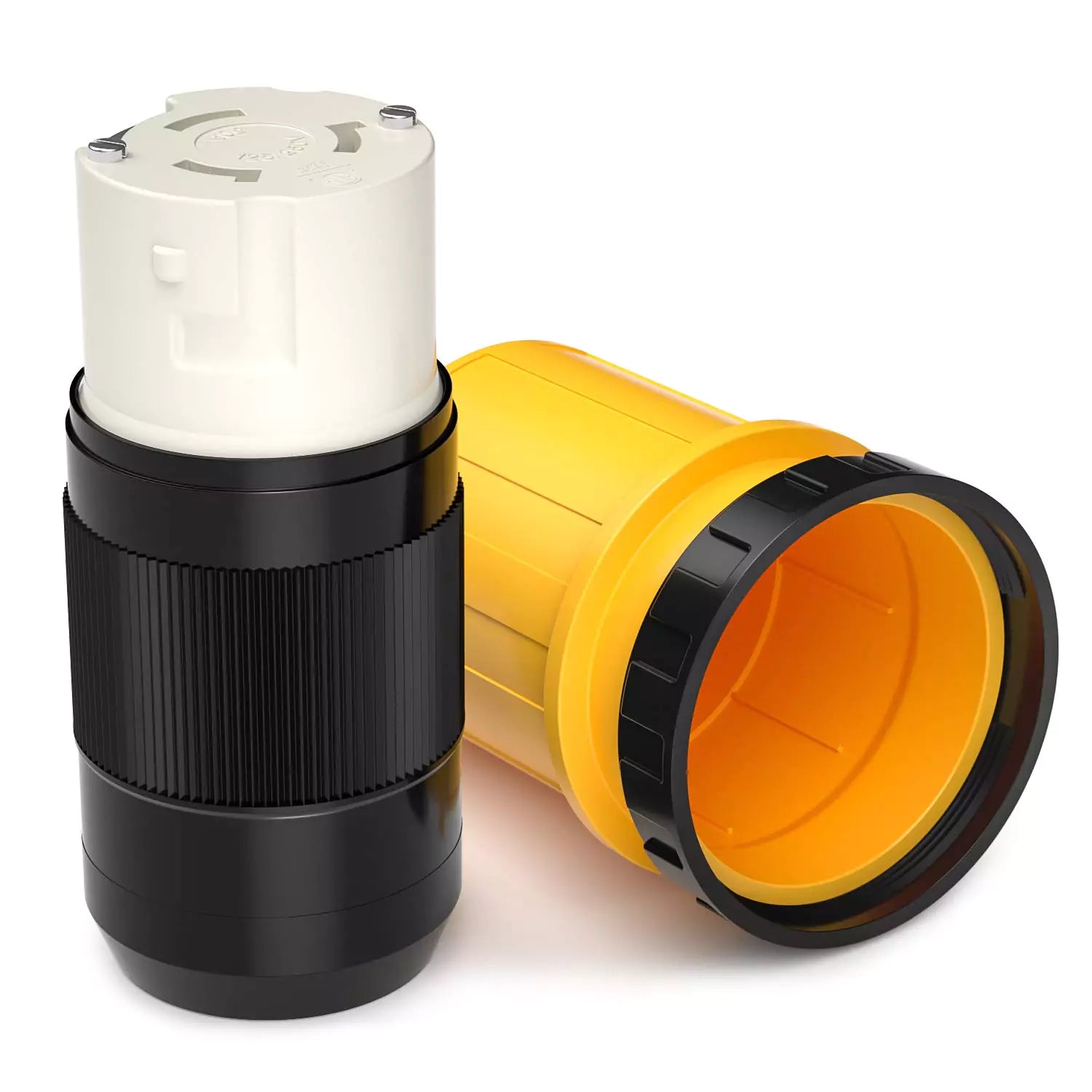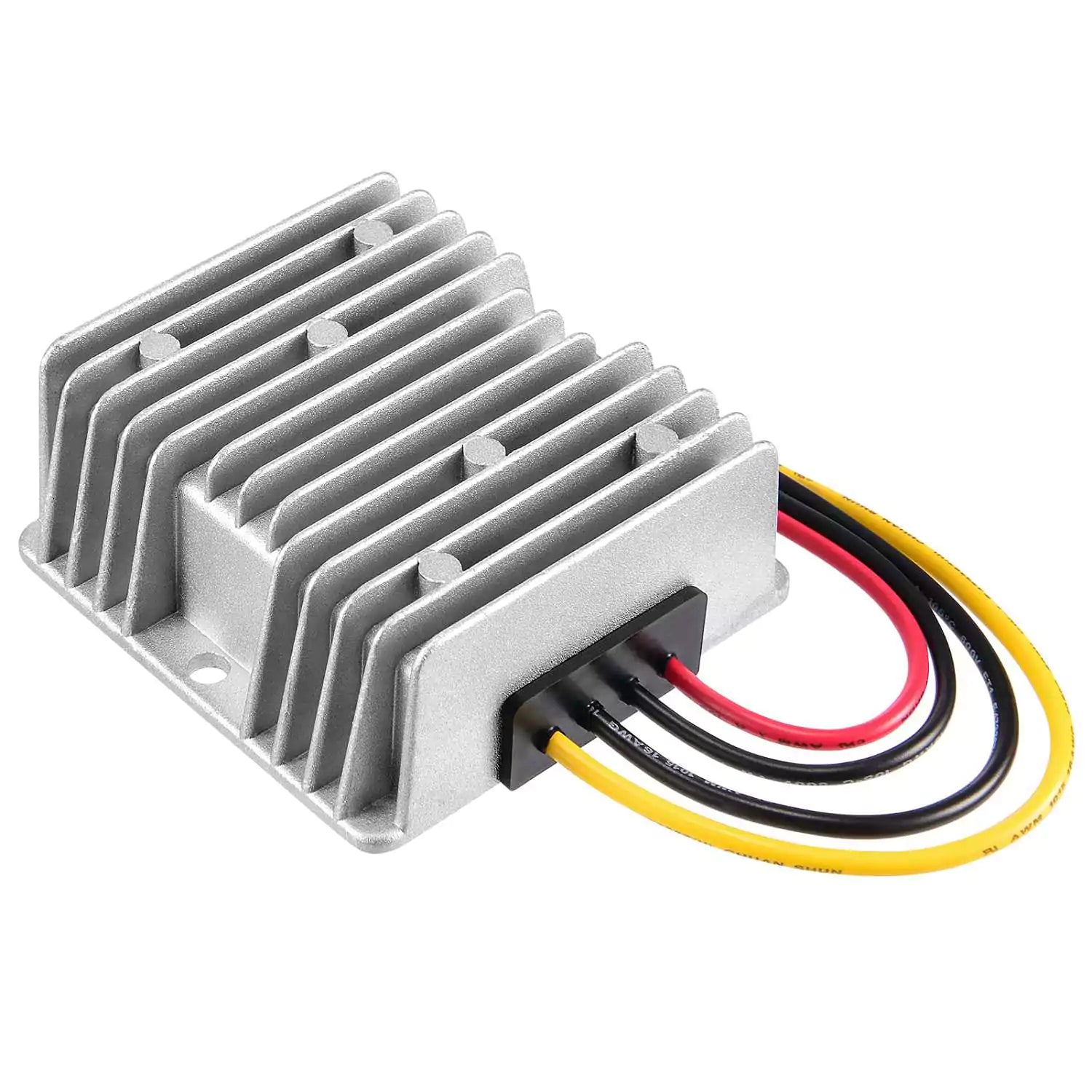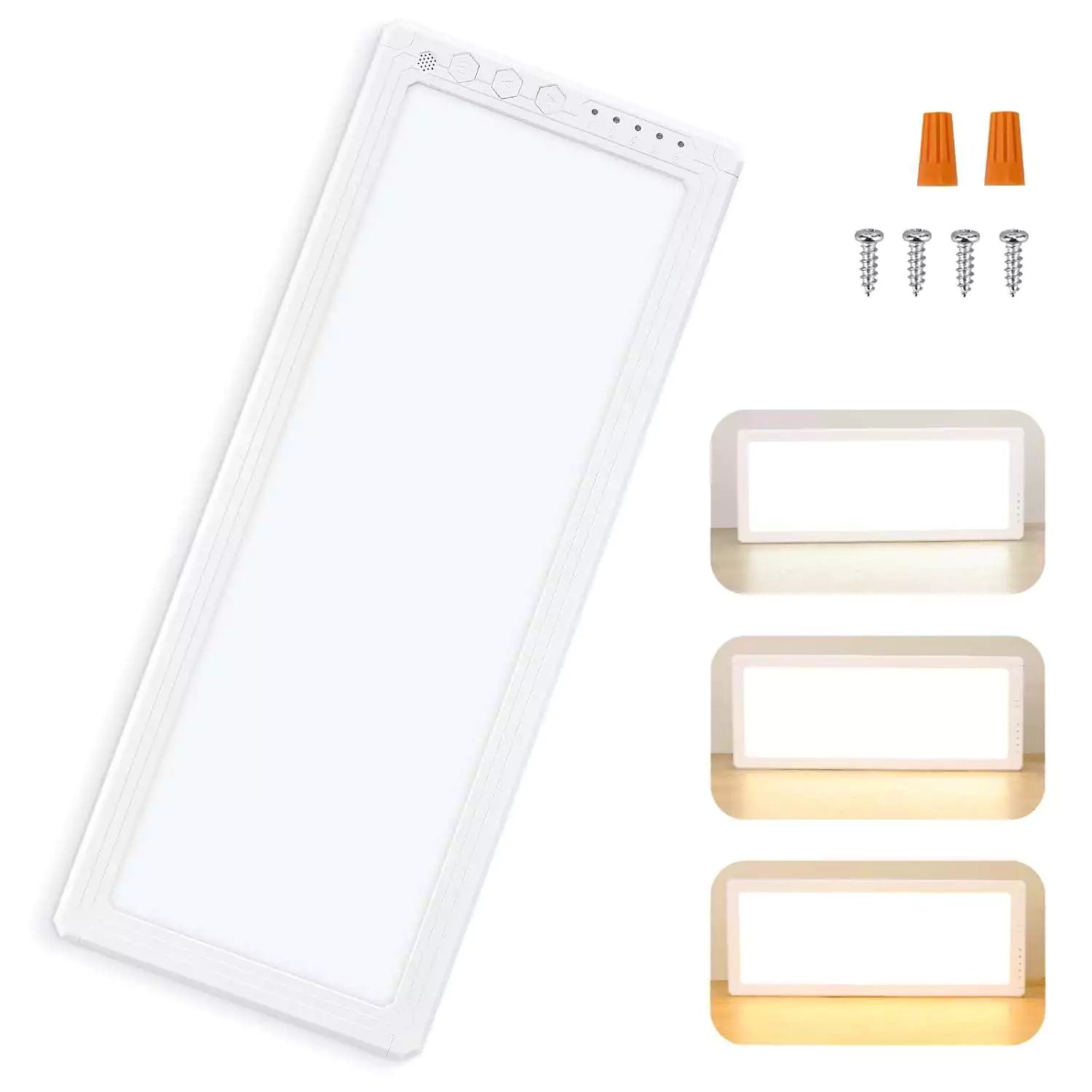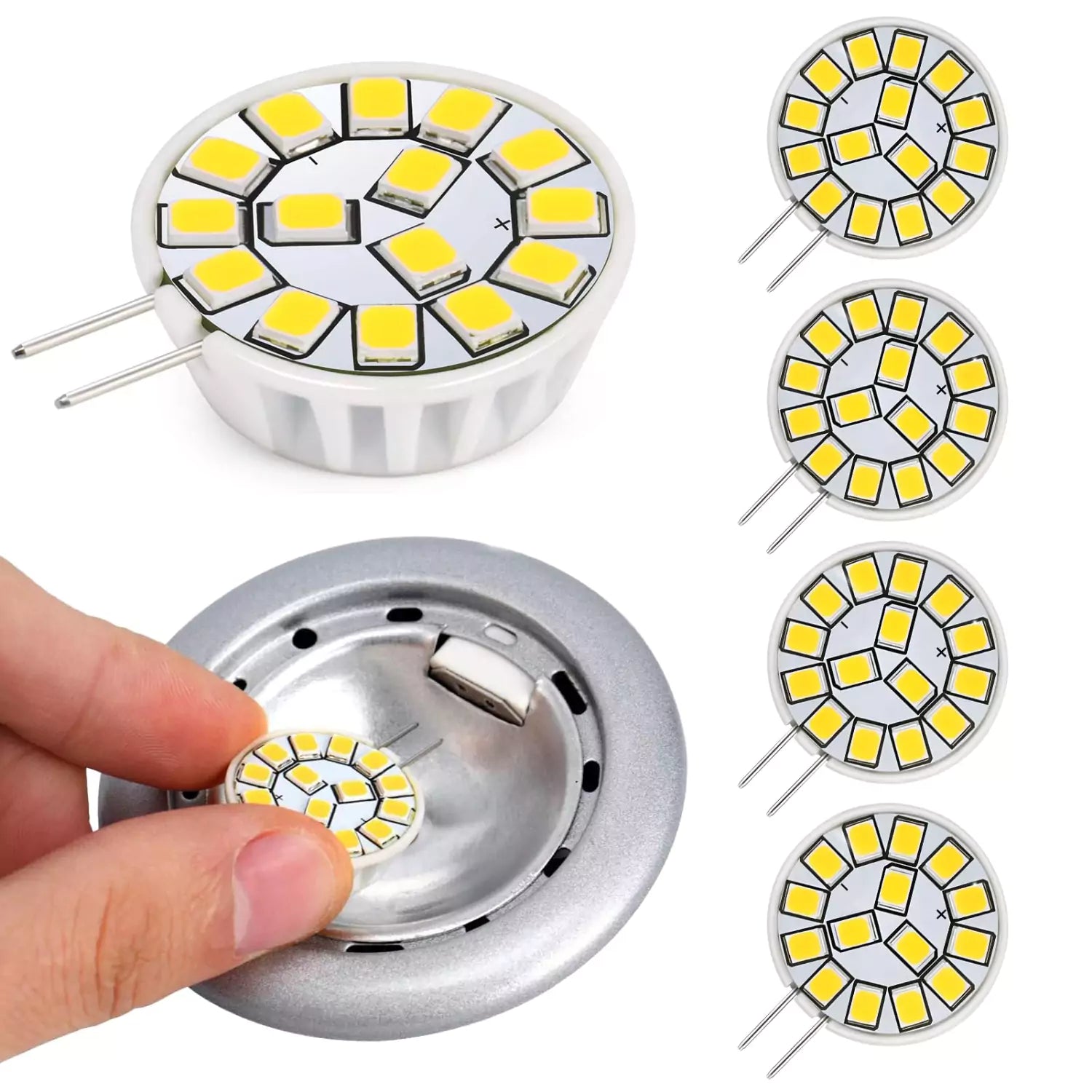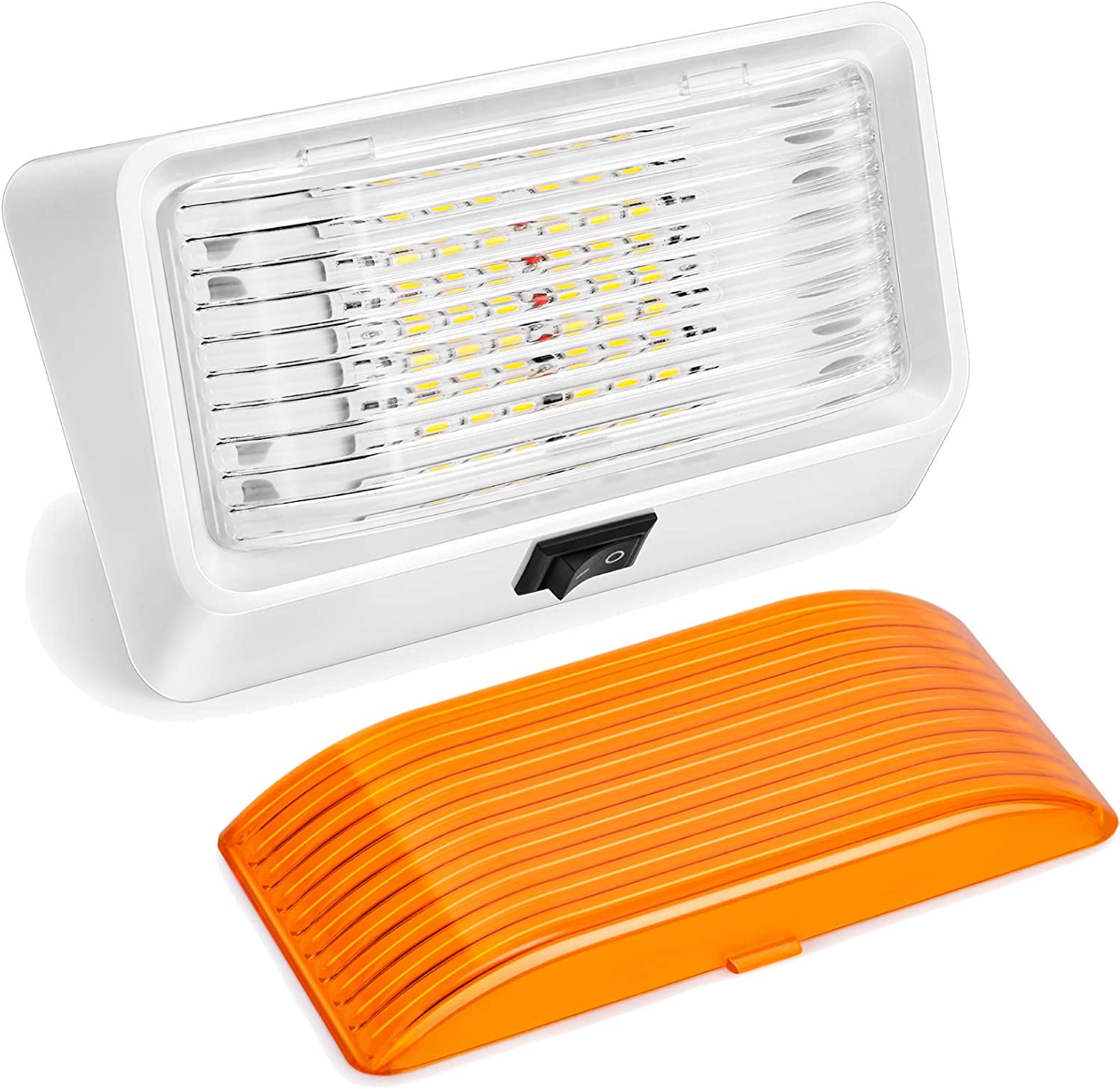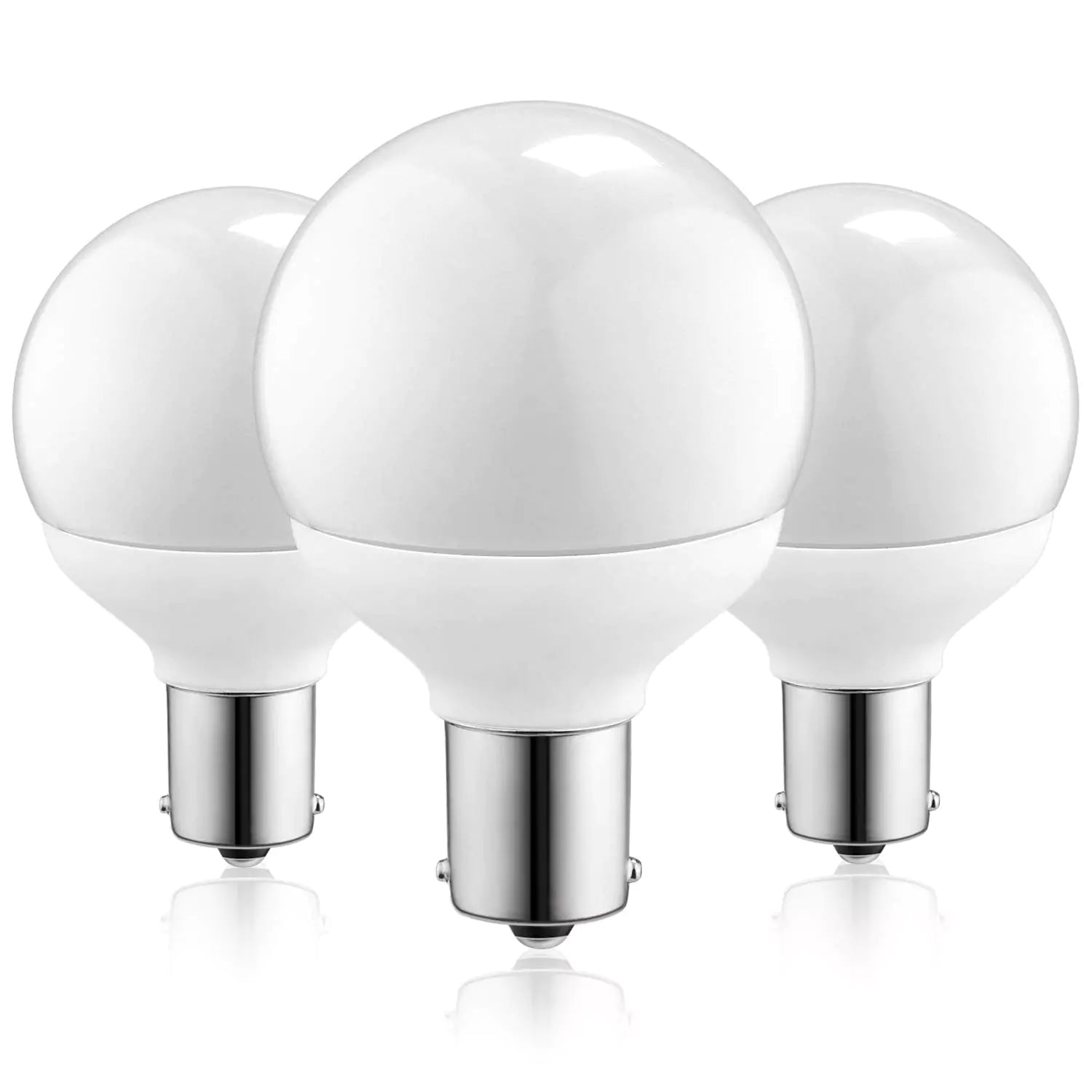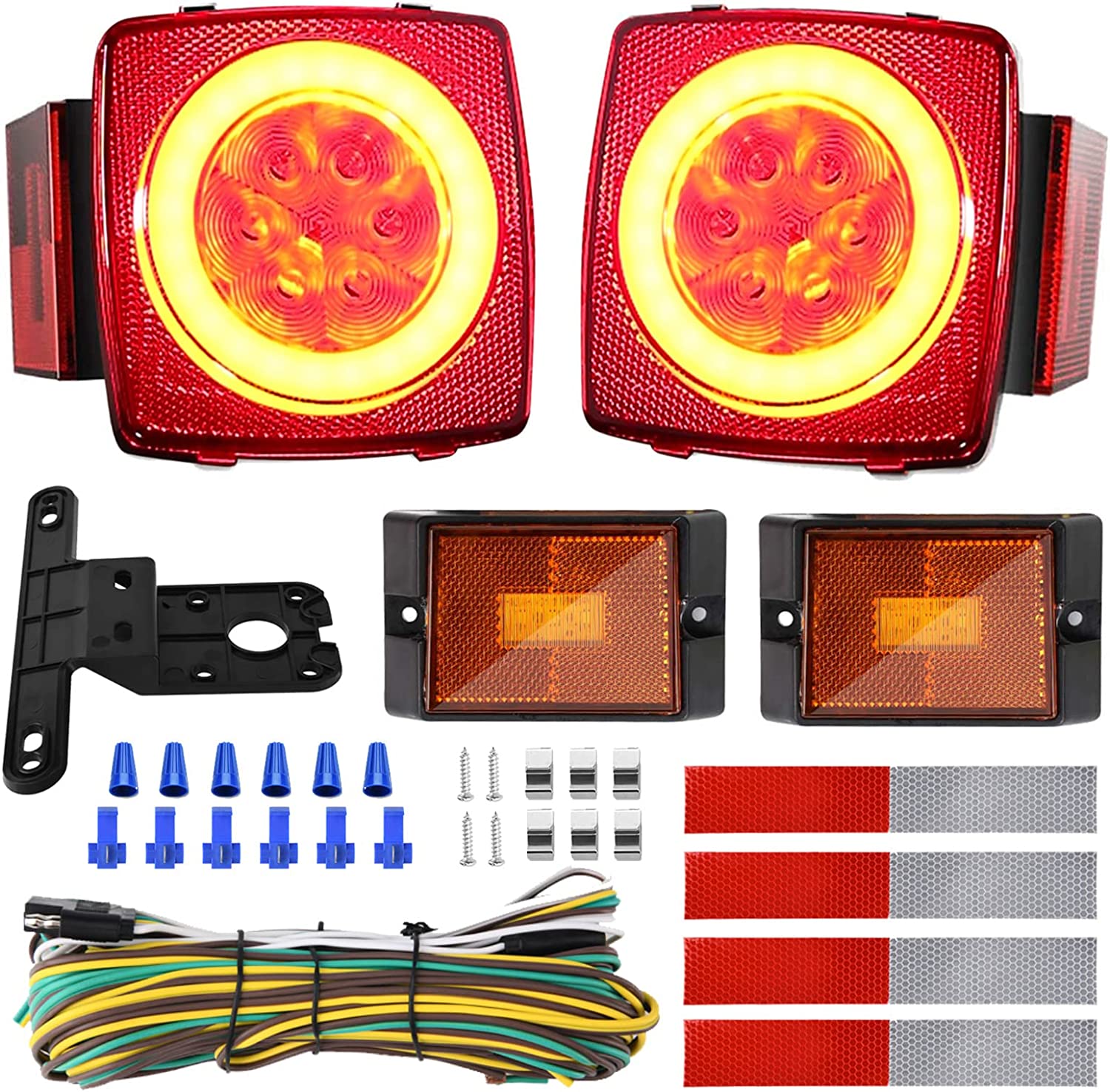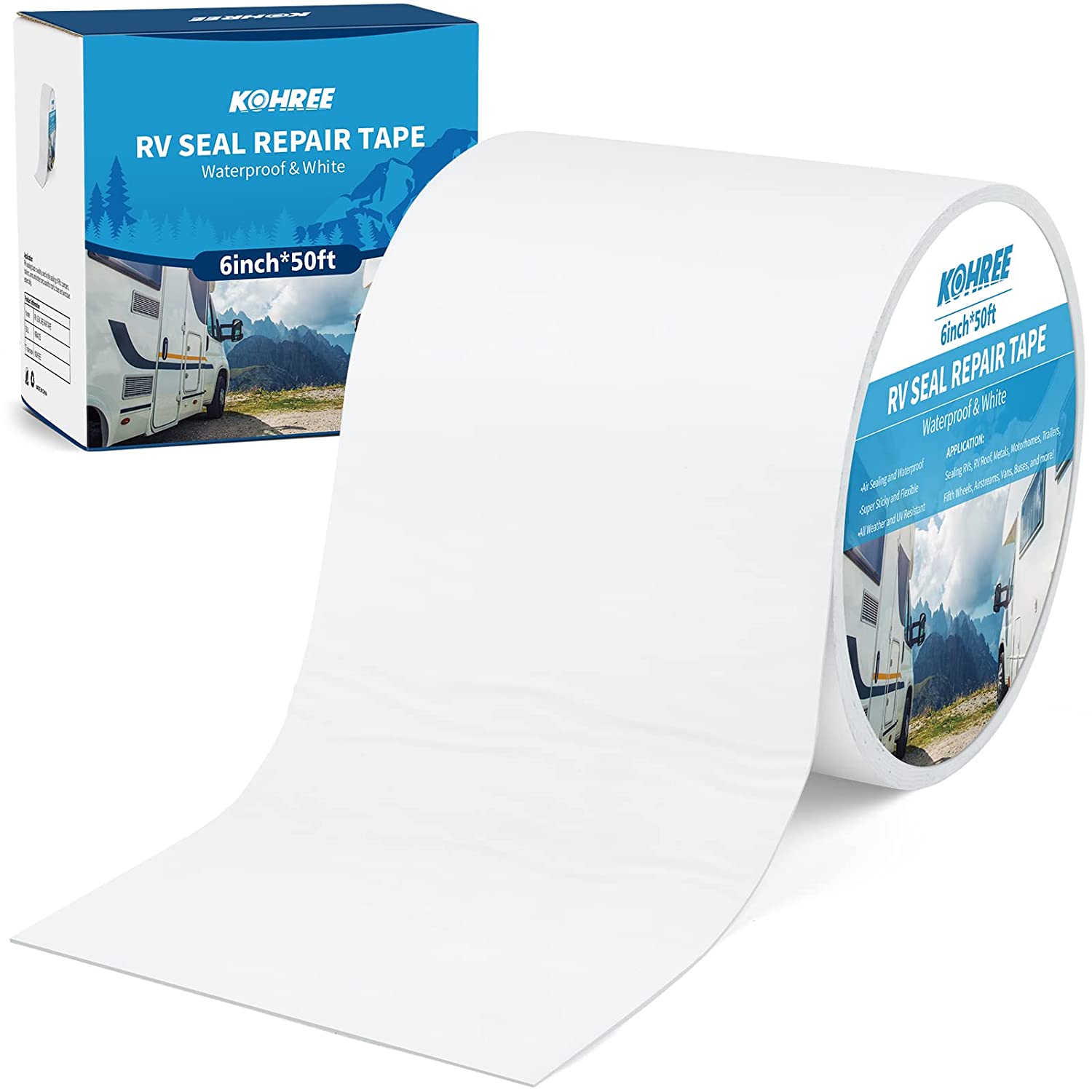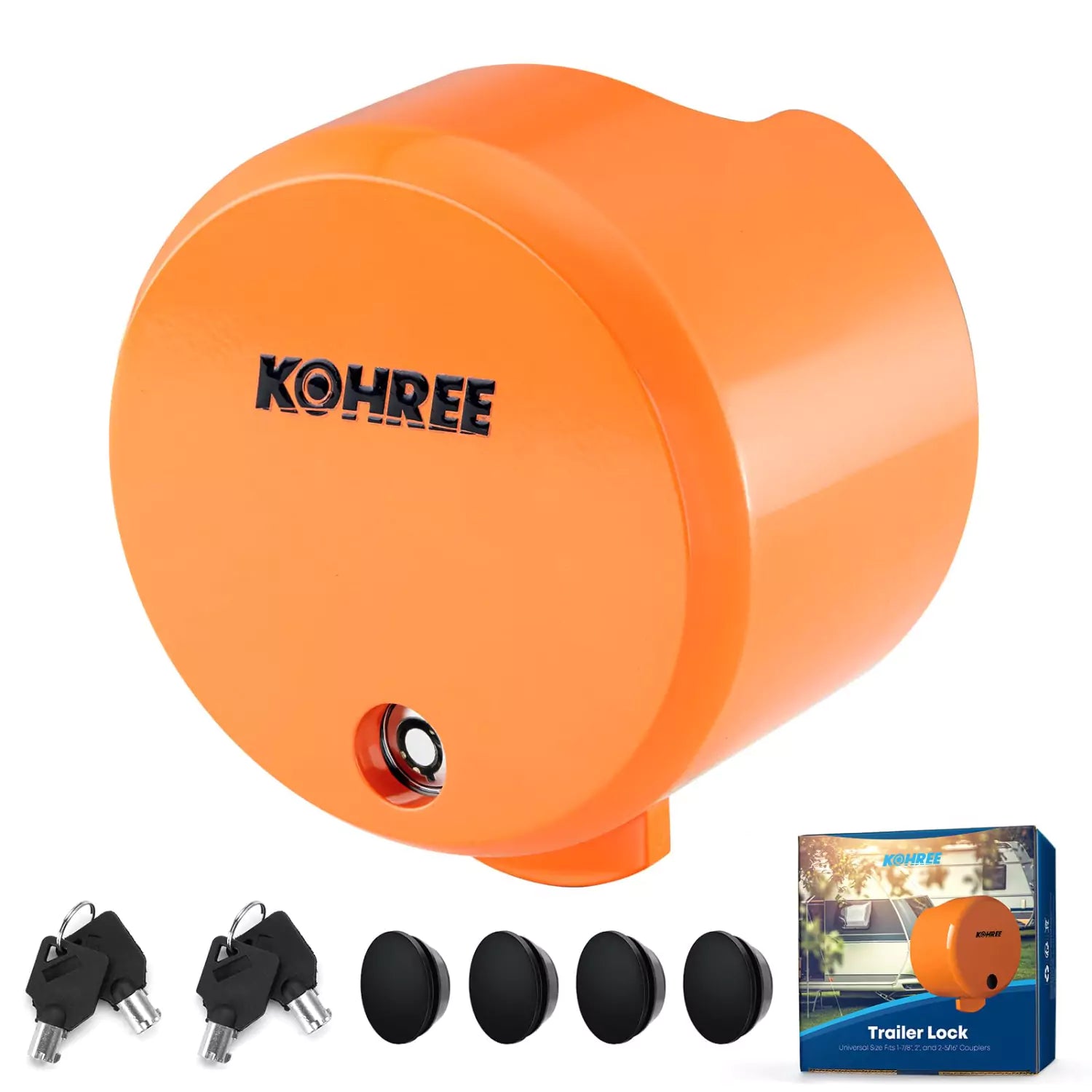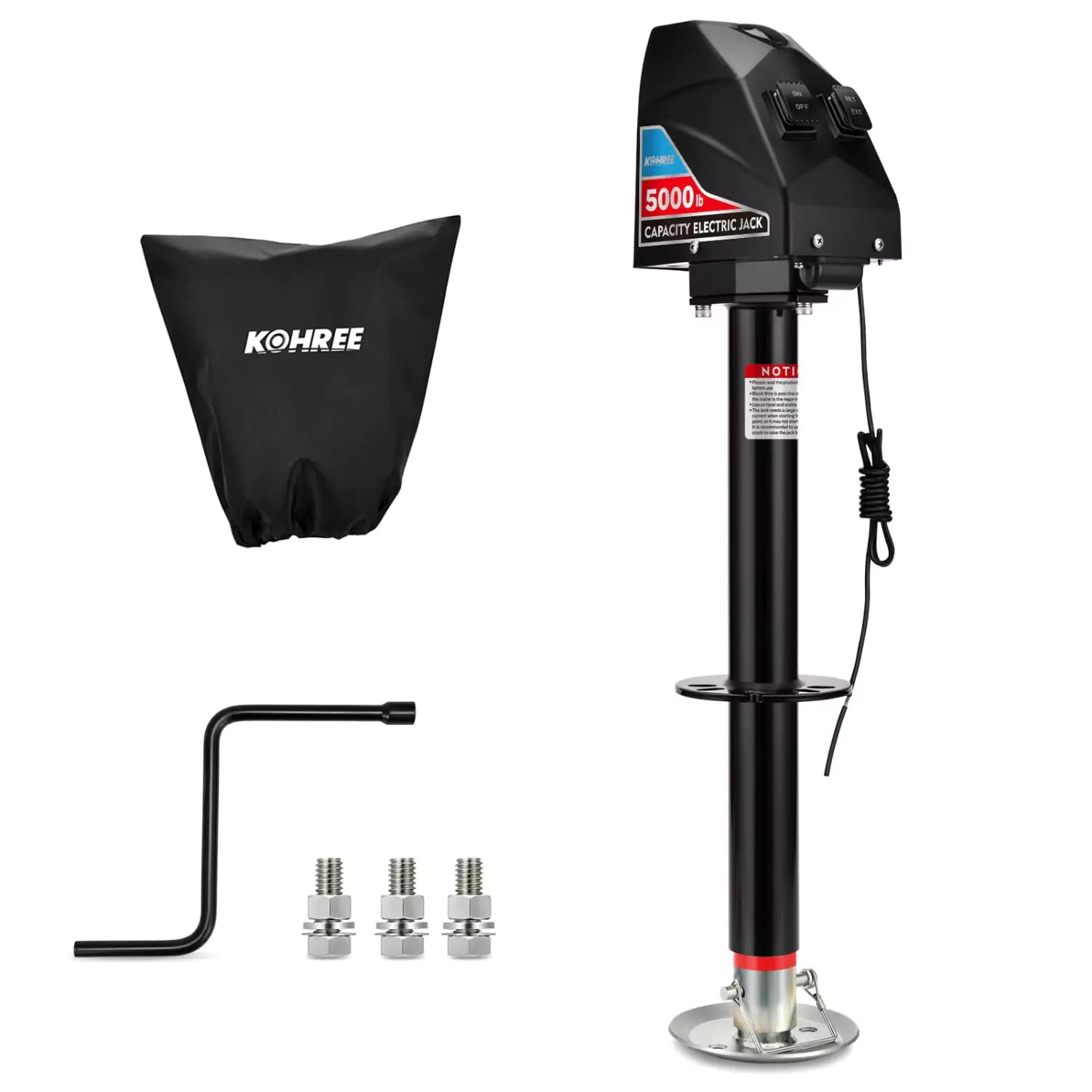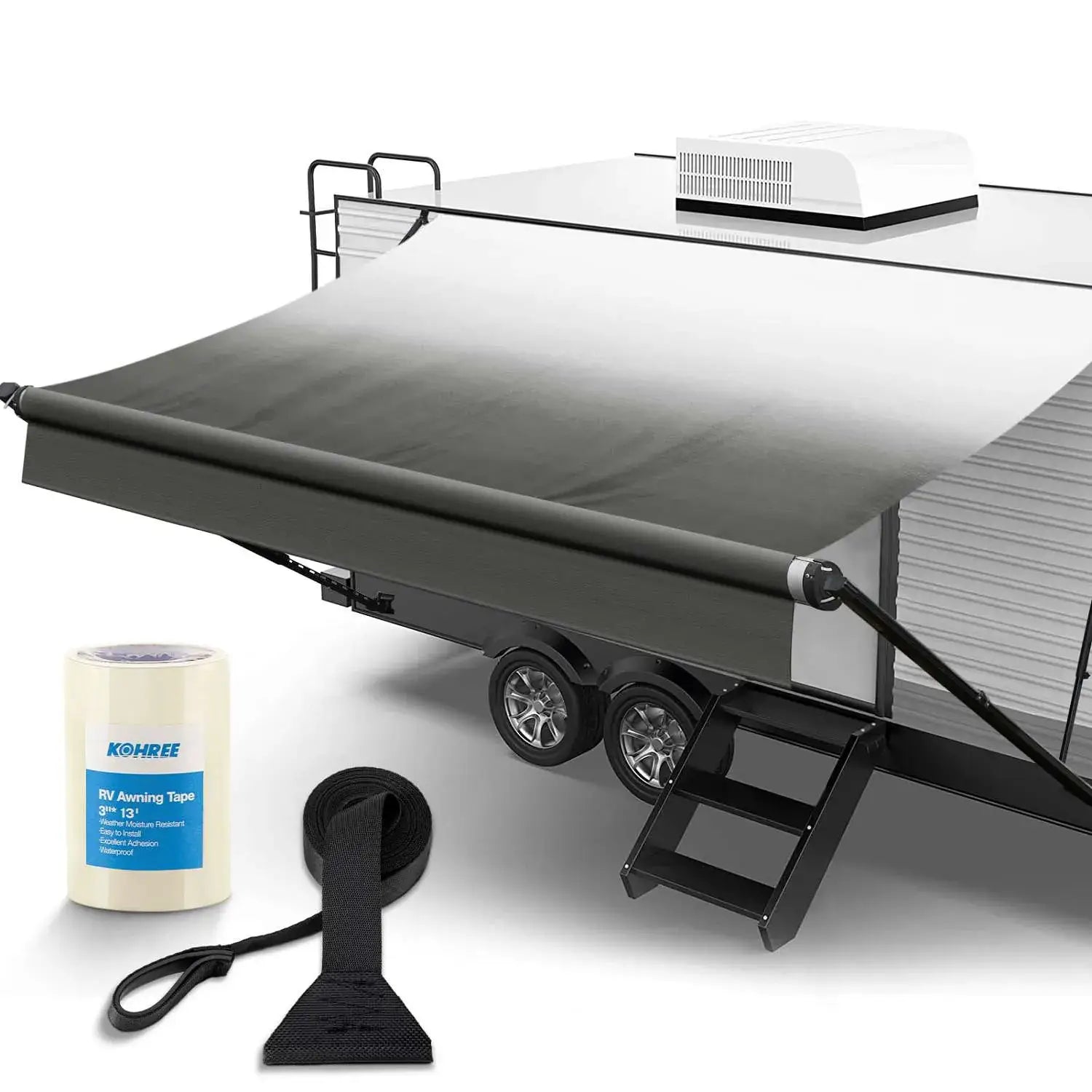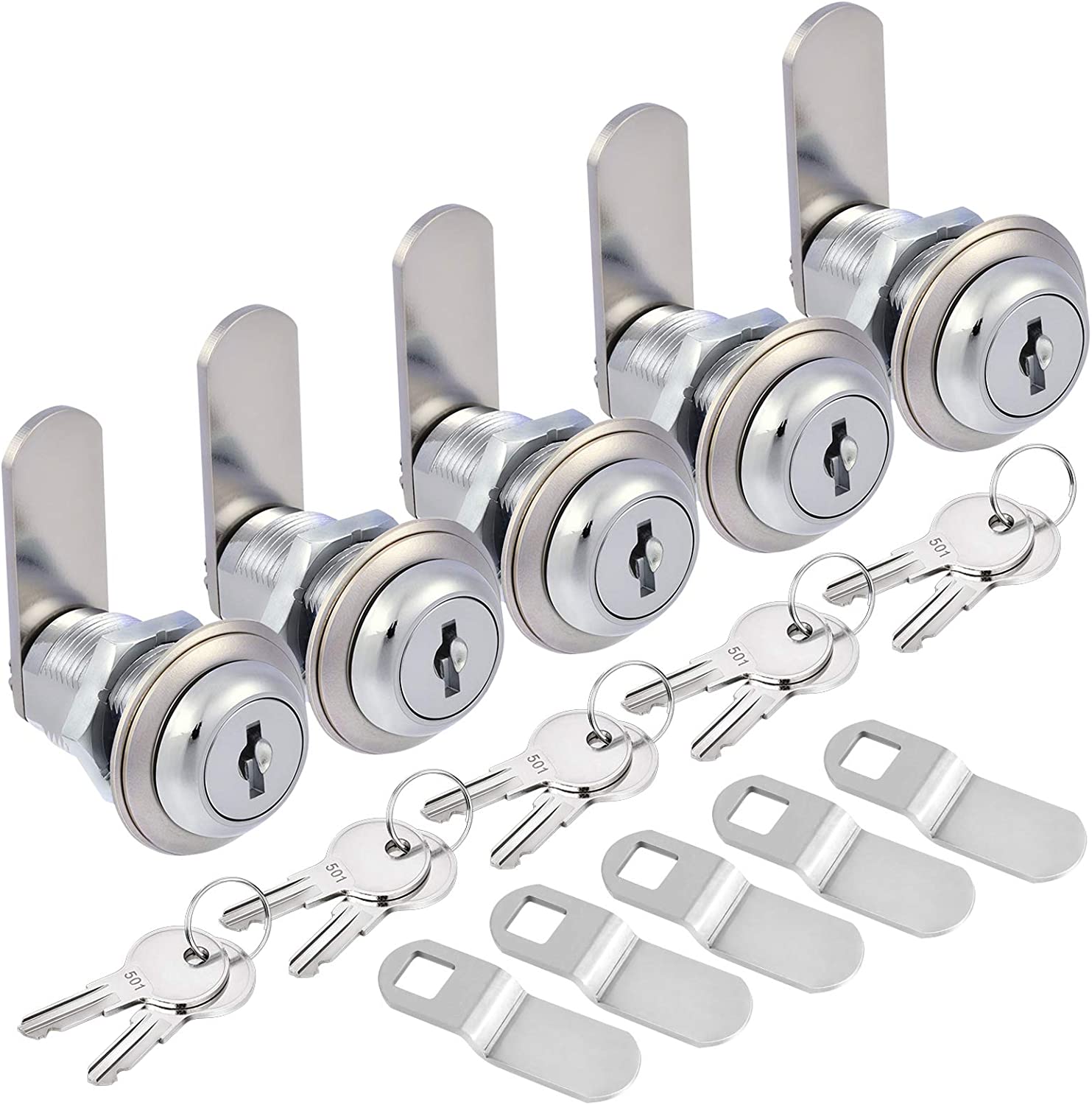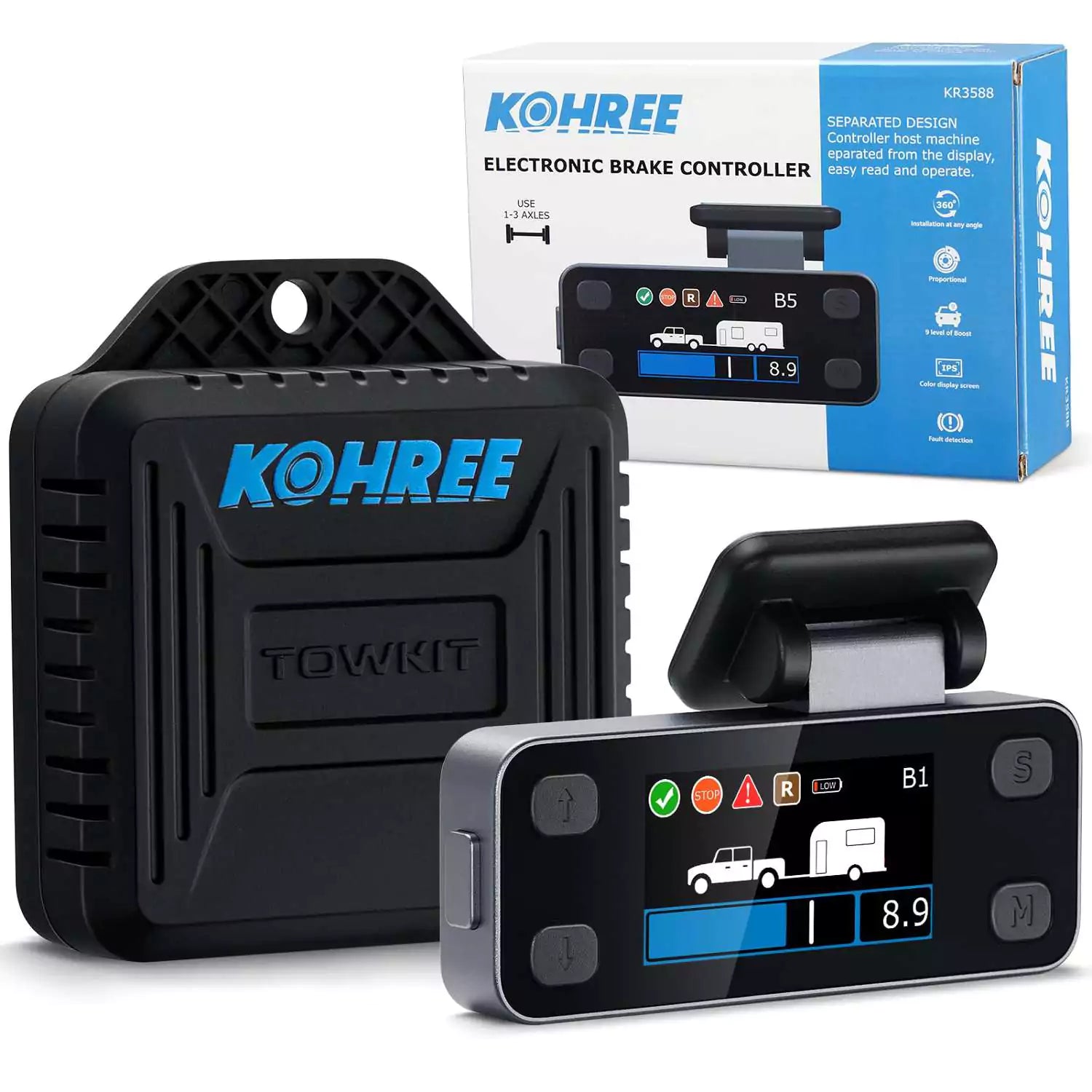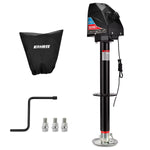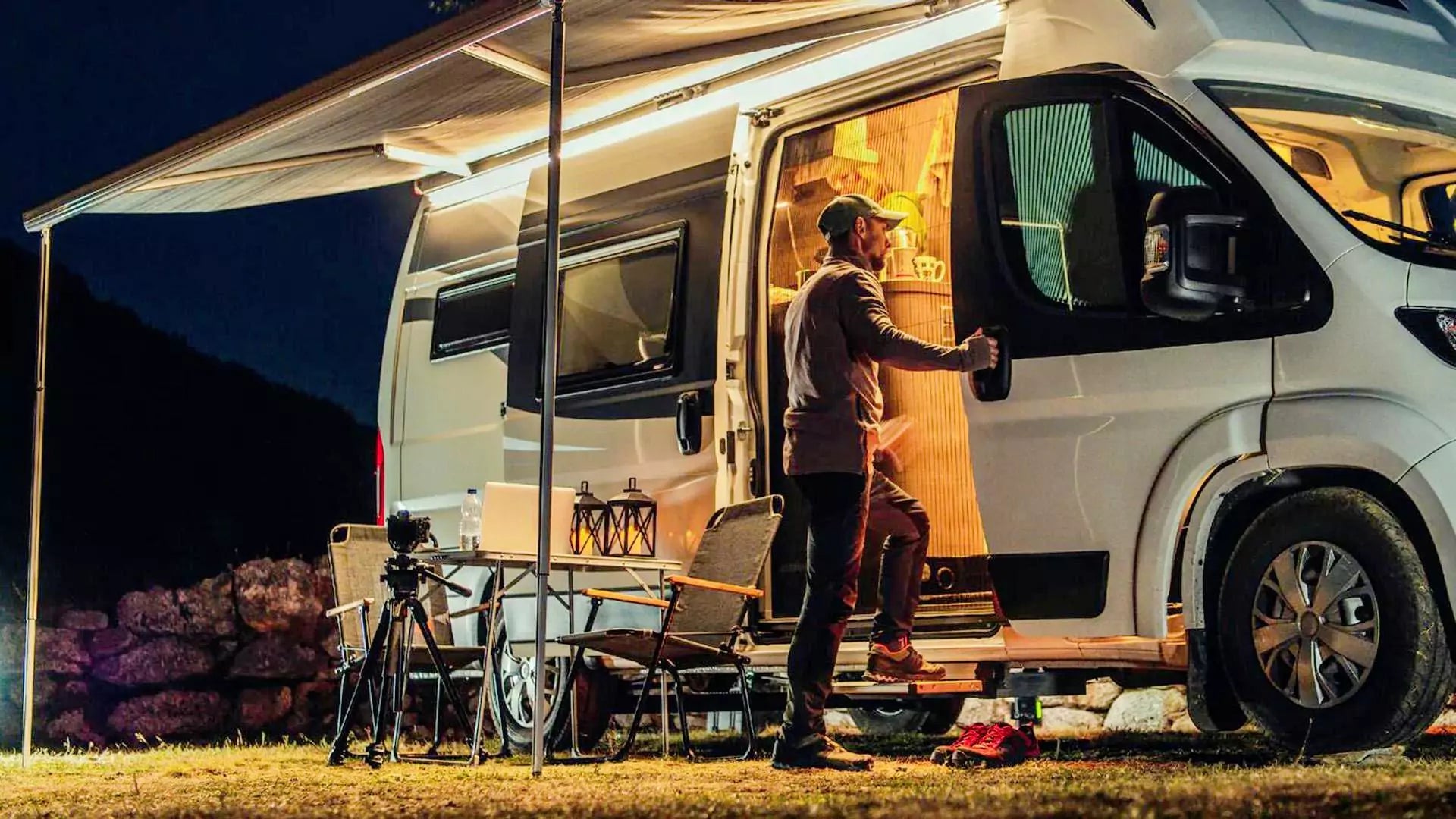
Imagine waking up to the sight of a vast aspen grove, colorful wildflowers, and rolling fields in the Rocky Mountains uplands, feeling the vibrant pulse of nature. Or picture yourself and your loved ones watching a breathtaking sunrise over the ocean or a sunset over the mountains from the comfort of your RV. Isn't that the life? RV travel is the perfect adventure if you've ever dreamed of a lifestyle like this.
While transitioning from car camping or backpacking to full-time RVing might seem like a big leap, it's quite achievable with a little research and pre-trip planning as well as discussing your ideas and asking for help in the RV community, it’s easier than you think.
To help you kickstart your first RV adventure, we've put together some quick tips. Relax, and let the journey begin!
Is an RV Vacation Right for You?
Common Misconceptions About RV Travel
Many people have preconceived notions about RV travel that can discourage them from considering it.
-
RVs are only for retirees?
One common misconception is that RVs are only for retirees or those who have a lot of time on their hands. While popular among seniors, RV travel is increasingly attracting younger generations, including millennials, solo travelers, and families with children.
-
Is RVing expensive?
While there are upfront costs, RV travel can be more economical than traditional vacations when you factor in savings on hotels and dining out.
-
Is Driving an RV difficulty?
Another myth is that RV travel is overly complicated and requires extensive knowledge. Modern RVs are designed with user-friendliness in mind, and most people can quickly adapt to driving or towing them with a bit of practice. While there is a learning curve, many first-time RVers find the experience rewarding and manageable with the right preparation.
-
Are RV parks crowded and noisy?
While some popular destinations can get busy, there are countless tranquil and scenic RV parks and campgrounds across the country. Just hit the road in your RV and enjoy stopping whenever the mood strikes.
Benefits of Traveling in an RV

RV travel offers plenty of advantages that make it an attractive option for travelers:
-
Flexibility and freedom: With an RV, you're not tied to hotel reservations or flight schedules. Want to stay an extra day in a beautiful spot? No problem. Feel like changing your route on a whim? Go for it!
-
Cost-effectiveness: While there's an initial investment (whether you're renting or buying), RV travel can be significantly cheaper than traditional vacations when you factor in savings on hotels and restaurants, especially for families or groups.
-
Comfort of home on wheels: Modern RVs come equipped with amenities like kitchens, bathrooms, and comfortable sleeping areas, providing a home-like experience wherever you go.
-
Connection with nature: Located in breathtaking natural surroundings, RV parks offer the perfect backdrop for outdoor fun. Whether you're stargazing with friends and family or letting your kids run wild in the open spaces, RV travel brings a fresh perspective to the great outdoors.
-
Social opportunities: Whether you're a solo traveler or a newbie RV enthusiast, you can easily meet like-minded people on your journey or at RV parks. During your downtime, you can even go fishing or hiking together.
Potential RV Vacation Destinations
With countless natural and man-made treasures, the U.S. offers endless possibilities for exploration. The freedom of RV travel allows you to visit them all. Here are some popular destinations to consider for your first trip.

-
National Parks: Immerse yourself in the grandeur of Yellowstone, Yosemite, or the Grand Canyon. Explore the otherworldly landscapes of Joshua Tree or Death Valley.
-
Coastal Journeys: Wake up to the sound of waves along California's Pacific Coast Highway or Maine's rocky shores. Enjoy scenic drives and coastal towns.
-
Mountain Adventures: Hike, fish, and soak in breathtaking vistas in the Rockies, Appalachians, or Sierra Nevada.
-
Desert Explorations: Discover the unique landscapes of the Southwest, including the iconic Joshua Tree and Death Valley.
-
Historical Routes: Follow the footsteps of Lewis and Clark, trace the Civil War trail, or explore the iconic Route 66.
-
Lake Retreats: Relax by serene lakes like Lake Tahoe or the Great Lakes, enjoying boating, fishing, and swimming.
Key Steps to Plan Your First RV Trip
The Earlier, the Better
When it comes to planning an RV trip, especially your first one, the old saying "the early bird gets the worm" couldn't be more true. Ideally, you should start planning your trip at least 3-6 months in advance. This might seem like overkill, but trust me, you'll thank yourself later.
Why so early? Well, popular RV campgrounds can book up months in advance, especially during peak season. By starting early, you'll have a better chance of securing spots at your preferred campgrounds. Plus, early planning gives you time to research thoroughly, compare prices, and potentially snag some great deals on RV accessories and campground fees.
Early planning also allows you to spread out the costs over time. You can book campgrounds, rent or buy RV essentials, and budget for fuel without putting a sudden strain on your finances right before the trip.

Here's a rough timeline to consider:
-
Early 6 months: Start researching destinations and RV types
-
Early 4-5 months: Book your RV rental or purchase
-
Early 3-4 months: Plan your route and book campgrounds
-
Early 2-3 months: Start acquiring RV accessories and essentials
-
Early 1 month: Finalize your packing list and start gathering supplies
Remember, this is just a guideline. Depending on your destination and the time of year, you might need to start even earlier. For instance, if you're planning a trip to popular national parks during summer, you might need to book campgrounds up to half a year in advance!
Developing a Destination Shortlist
Creating a shortlist of destinations is crucial. Consider factors such as travel distance, weather conditions, and the types of activities you want to engage in. Research potential stops along the way, including interesting landmarks, scenic routes, and local attractions that can enhance your journey.

Next, consider practical factors:
-
Distance: For your first trip, it's often wise to stay relatively close to home. If you plan to become a full-time RV driver in the future, it's best to choose a destination that's not too far from a campground. This makes it easier to return if something goes wrong.
-
Weather: Check the typical weather conditions for your potential destinations during your planned travel time.
-
Amenities: Some travelers prefer full-service RV resorts, while others enjoy more rustic campgrounds. Know what you're comfortable with.
-
Attractions: Look into what there is to see and do in the area. Are there hiking trails, museums, or other points of interest that excite you?
Don't forget to leverage online resources. RV forums, travel blogs, and sites like TripAdvisor can provide valuable insights from experienced travelers. Many RVers also share their experiences on YouTube, which can give you a visual sense of different destinations.
Plan your route to connect all the destinations seamlessly, avoiding unnecessary detours to save time and money.
How to Choose the Right RV Camper for the First Trip?
What RV Types Should I Choose: Drivable vs. Towable
Choosing the right RV is a critical step in planning your trip. RVs generally fall into two main categories: drivable (motorized) and towable. Each has its advantages and considerations.
Drivable RVs (motorhomes):
-
Class A: These are the largest and most luxurious motorhomes, often resembling a bus. They offer spacious living areas and plenty of storage but can be challenging to drive and park for beginners.

-
Class B: Also known as campervans, these are built on a van chassis. They're the smallest and most maneuverable motorhomes, making them great for city exploration, but they have limited living space.

-
Class C: These are a middle ground between Class A and B. Built on a truck chassis with an over-cab sleeping area, they offer a good balance of living space and drivability.

Towable RVs (require a separate vehicle to tow them):
-
Travel Trailers: These range from small teardrop trailers to large 35-foot models. They offer flexibility as you can unhitch at your campsite and use your tow vehicle for local exploration.

-
Fifth Wheels: These large trailers attach to a special hitch in the bed of a pickup truck. They offer spacious living areas but require a powerful tow vehicle.

-
Pop-up Campers: These compact trailers "pop up" into a tent-like structure when parked. They're lightweight and easy to tow but offer limited amenities.

For first-time RVers, many experts recommend starting with a Class C motorhome or a medium-sized travel trailer. These offer a good balance of comfort and maneuverability without being too overwhelming to operate.
Renting or Buying a Camper is Better?
-
Renting a camper:
Pros:
Lower upfront costs: Renting typically requires a smaller initial investment compared to buying.
Flexibility: You can try out RVing without committing to long-term ownership.
Minimal maintenance: The rental company handles most maintenance and repairs.
Variety of options: You can choose from a wide range of RVs to suit your specific needs and preferences.
Cons:
Limited control: You may have less control over the RV's features and amenities.
Additional fees: Renting often involves fees for mileage, generator use, and other amenities.
Potential for price fluctuations: Rental rates can vary depending on seasonality and demand.
Limited customization: You may not be able to personalize the RV as much as you would like.
-
Buying a camper:
Pros:
Long-term savings: Buying an RV can be more cost-effective in the long run, especially if you plan to RV frequently.
Customization: You can choose the exact features and amenities you want.
Personalization: You can make the RV your own with modifications and upgrades.
Potential for resale value: RVs can appreciate over time, especially if they are well-maintained.
Cons:
Higher upfront costs: Buying an RV requires a significant initial investment.
Maintenance and repairs: You are responsible for all maintenance and repairs.
Insurance costs: RV insurance can be expensive, especially for newer or higher-end models.
Depreciation: RVs depreciate over time, just like cars.
For your first RV trip, renting is often the recommended option. It allows you to test the RV lifestyle without a significant financial commitment. If you find you love RVing, you can always consider purchasing later when you have a better idea of your preferences and needs.
Essential Features to Look for in Your First RV
Regardless of whether you're renting or buying, to ensure a comfortable and safe first RV trip, carefully consider the necessary features and size of your RV. Here are some key features to keep in mind:
-
Ease of use: For your first RV, look for user-friendly features like an easy-to-operate waste disposal system and simple control panels.
-
Bathroom facilities: A full bathroom with a toilet, sink, and shower can greatly enhance your comfort, especially for longer trips.
-
Kitchen amenities: Look for a refrigerator, stove, and microwave at minimum. These can be a nice bonus for longer trips.
-
Storage space: Adequate storage is crucial for keeping your living area uncluttered.
-
Climate control: Air conditioning for summer trips and heating for cooler weather are essential for comfort.
-
Power options: Look for RVs with both shore power hookups and a generator for boondocking (camping without hookups).
Choosing the right RV is a big decision, but with careful consideration of your needs and preferences, you'll find the perfect home-on-wheels for your adventure.
Budgeting for Your RV Trip
One of the most appealing aspects of RV travel is its potential for cost savings compared to traditional vacations. However, without proper budgeting, costs can quickly add up. Let's break down the main expenses you'll need to consider and explore some money-saving tips for your first RV adventure.
Estimating Costs: Fuel, Campsites, and Food
Fuel will likely be one of your biggest expenses, especially if you're traveling long distances. RVs are not known for their fuel efficiency, with most motorhomes averaging between 6-10 miles per gallon. To estimate your fuel costs:
- Research the fuel efficiency of your specific RV model.
- Plan your route and calculate the total mileage.
- Check current fuel prices along your route.
- Multiply your estimated gallons needed by the average fuel price.
Campsite costs can vary widely depending on location, amenities, and season.
Here's a general range:
- State and National Park Campgrounds are about $20-$50 per night.
- Private RV Parks are about $30-$100+ per night.
- Luxury RV Resorts are about $50-$200+ per night.
Some factors that can influence price include:
- Full hookups (water, electric, sewer) or partial or no hookups
- Premium sites (waterfront, pull-through, etc.)
- On-site amenities (pools, wifi, laundry facilities)
- Peak season pricing
To budget accurately, research and book your campsites in advance whenever possible. This not only ensures you have a spot but also gives you a clear picture of your accommodation costs.
One of the benefits of RV travel is the ability to cook your meals, which can lead to significant savings compared to eating out.
However, you'll still need to budget for groceries and the occasional restaurant meal. You can consider stocking up on non-perishables before your trip.
A good rule of thumb is to budget slightly more than you would for food at home, accounting for some convenience items and the occasional spend on local specialties.
- Activities and Entertainment
Don't forget to budget for activities at your destination(s). This might include: National park entrance fees, local attractions and tours, recreational equipment rentals (kayaks, bikes, etc.)
Research your destinations in advance to get an idea of potential costs and look for package deals or discount passes for multiple attractions.
Finally, be sure to budget for:
- RV rental fees (if applicable)
- Campground utilities not included in site fees
- Propane for cooking and heating
- Laundry costs
- Emergency fund for unexpected repairs or expenses
Tips for Saving Money on Your RV Adventure
Saving money on your RV trip is entirely possible with a few strategic choices.
-
Use fuel-finding apps: Apps like Waze and GasBuddy can help you locate the cheapest fuel along your route.
-
Cook meals in your RV: Stocking your RV with plenty of non-perishable and easy-to-prepare foods can help you save money on food expenses, save time on meal preparation, and create a more enjoyable dining experience with your family while on the road.
-
Take advantage of camping memberships: Organizations like Good Sam or Passport America offer discounts at participating campgrounds.
-
Consider free campsite: Google Maps and websites like Freecampsites.net and Campendium offer verified free campsites, helping you save on accommodation. This is especially useful if your desired destinations are nearby.
-
Travel during off-peak seasons: You'll find lower rates on campgrounds and fewer crowds.
-
Use rewards credit cards: Earn points or cash back on fuel and supply purchases. Many gas stations and grocery stores offer loyalty programs that can lead to significant savings over a long trip.
How to Choose the Best RV Resorts and Campsites?
What Are Different Types of Campgrounds?
Understanding the different types of campgrounds is essential for a successful RV trip. Public campgrounds often offer basic amenities at lower prices, while private campgrounds provide additional services such as Wi-Fi, pools, and organized activities. Researching your options will help you find the best fit for your needs.
-
Public Campgrounds: Operated by national, state, or local governments, often offer scenic locations within national or state parks. They are generally more affordable than private campgrounds but may have fewer basic amenities, such as picnic tables, drinking water, and trash disposal.

-
Private RV Parks: Owned and operated by individuals or companies, typically offer full hookups, including water, electricity, and sewer. These parks often have additional amenities such as Wi-Fi, laundry facilities, and recreational areas. The level of amenities can vary widely, from basic to luxurious resort-like settings. Offer a wider range of amenities at varying costs.

-
RV Resorts: They are upscale private campgrounds that offer a wide range of amenities, including swimming pools, fitness centers, and organized activities. They often feature spacious campsites and meticulously maintained grounds. However, RV resorts generally come with a higher price tag.

-
Membership Campgrounds: Such as Thousand Trails and Coast to Coast, require membership fees and offer amenities and community events. These campgrounds can provide substantial savings for frequent RV travelers.

-
Boondocking Sites: They offer free or very low-cost camping without amenities like water, electricity, or sewer hookups. These sites are often located on public lands such as Bureau of Land Management (BLM) land or National Forests. Boondocking requires self-sufficiency and adherence to leave-no-trace principles. This type of camping provides a more secluded and immersive experience in nature.

What Campground Should I Choose for My First Trip?
For your first RV trip, a private campground or RV park is often the best choice. Here's why:
-
Full Hookups: Having access to water, electricity, and sewer connections makes your first experience more comfortable and less intimidating.
-
Amenities: Features like wifi, laundry facilities, and camp stores can be very helpful when you're just starting.
-
Staff Assistance: Most private campgrounds have staff on-site who can help if you encounter any issues.
-
Easy Access: Private campgrounds are often easier to navigate, with pull-through sites that are perfect for beginners.
When choosing a private campground, consider the following:
-
Location: How close is it to the attractions you want to visit?
-
Reviews: Check sites like RV Park Reviews or Campground Reviews for honest feedback from other RVers.
-
Amenities: What facilities are important to you? (WiFi, pool, dog park, etc.)
-
Rules and Restrictions: Check for any restrictions on RV age, pet policies, quiet hours, etc.
The Importance of Early Campsite Reservations
One of the most crucial pieces of advice for new RVers is to book your campsites early, especially if you're traveling during peak season or to popular destinations.
Here's why:
-
Limited Availability & Better Selection: The best campsites often book up months in advance, particularly in national parks and popular tourist areas. Booking early gives you access to the most desirable sites, like those with the best views or closest to amenities.
-
Special Requests: If you need a specific type of site (like a pull-through or a site that can accommodate a larger RV), booking early increases your chances of getting it.
-
Planning Your Route: Having your campsites booked allows you to plan your driving distances more accurately.
How to make reservations:
- For public campgrounds, use Recreation.gov for federal sites or the state park website for state parks.
- For private campgrounds, book directly through their website or call them.
- Consider using a booking service like RV Life or Campspot, which allows you to book multiple campgrounds in one place.
Choosing the right campsite is about balancing your needs, budget, and desired experience. Don't be afraid to ask questions when making reservations, and always have a backup plan in case your first choice isn't available.
In the next section, we'll explore how to plan an RV-friendly route, research parking options, and adjust your estimated arrival times for a smooth journey.
Essentials Accessories for Your First RV Trip
As your departure date approaches, it’s time to focus on the practicalities of preparing for your RV adventure. Proper preparation can ensure a smoother and more enjoyable trip. Let's delve into what you need to pack and the essential RV accessories you shouldn’t leave home without.
The 11 Must-Haves for Your First RV Trip
-
RV Water Pump
Water is essential for life, and a reliable water system is just as vital for the enjoyment of your RV adventures. The RV water pump controls the flow of water throughout your vehicle, powering everything from washing dishes to taking a shower. A higher flow rate means more water is available for your needs.
Our RV water pumps offer flow rates of 3.5, 5.5, and 7.0 gallons per minute, catering to a wide range of RVs from compact campers to large luxury motorhomes. The self-priming design ensures a continuous and steady water supply, while the built-in overheat protection and automatic start-stop function guarantee long-lasting, reliable performance. Find out how to choose water pumps for RVs here.

-
RV Water Hose
In addition to RV water pumps, RV water hoses are another essential component of every recreational vehicle. These hoses are typically used for drinking water and filling your RV's fresh water tank. RV water hoses are designed to be kink-resistant and leakproof. When purchasing, ensure they have NSF certification to guarantee safe drinking water.
RV water hoses can be divided into standard hoses and heated hoses. Standard hoses are suitable for most weather conditions but can freeze in winter. Heated hoses are specifically designed for winter use to prevent freezing and provide a continuous supply of warm water in cold climates. Both types are essential RV accessories.
Our RV water hoses not only meet NSF standards but also feature high-quality brass fittings and triple-layer kink-resistant rubber construction for long-lasting durability. They come with a convenient storage bag for easy transport to any campsite.
Need help choosing the right hose? Check out our guides on how to select the best RV water hose and the best-heated RV water hose.

-
RV Macerator Pump
Besides clean drinking water, RV lifestyles also generate wastewater from showers, toilets, and other sources. When boondocking in remote areas without access to sewer hookups, proper wastewater management is crucial.
A convenient solution is to use an RV macerator pump to process waste into a liquid form that can be easily discharged into a sewer system, eliminating the need to visit a dump station.
Our RV macerator pump offers a complete solution, capable of emptying a 150-liter holding tank in just 4 minutes. This efficient system minimizes unpleasant odors during the waste disposal process.

-
RV Sewer Hose Support
If you're dumping your wastewater over uneven terrain, you may encounter drainage issues. To ensure a smoother and more efficient dumping process, I recommend using an RV sewer hose support. Designed with a deep U-shaped cradle, this RV sewage hose support provides exceptional support and stability, preventing sagging or leaks while draining your wastewater.

-
Portable RV Toilet
If your RV doesn't come equipped with a built-in toilet, a portable RV toilet is the perfect solution. Enjoy the convenience of a restroom wherever you go without feeling restricted.
Our RV camping portable porta potty offers a large capacity with a 5.8-gallon waste tank and a 3.2-gallon fresh water tank, allowing for up to 90 flushes. The waste tank level indicator lets you know when it's time to empty, while the odorless and leak-proof design keeps your environment clean and fresh. The anti-leakage and odor sealant valve ensures that liquids and odors are securely contained, and the splash-free rotating pouring spout allows for easy and mess-free emptying.

-
Adjustable Trailer Hitch Lock
Another essential tool for towing a trailer is a trailer hitch lock. This lock connects the trailer to the tow vehicle, ensuring balance and stability to prevent accidents. We offer both dual ball adjustable trailer hitch lock and puck system gooseneck ball hitch lock to accommodate various trailer designs.
Crafted from high-strength aluminum with a rust-resistant coating, these locks are built to withstand any weather conditions. The adjustable design ensures a secure and level connection for your trailer. See the comprehension guide about adjustable hitch locks here.

-
Trailer Coupler Lock
If you're traveling in a trailer, a sturdy coupler lock is an absolute must-have. Our trailer coupler lock is designed to maximize your trailer's security, deterring thieves from stealing your valuable belongings.
Constructed from high-strength structural steel and weighing 7.71 pounds, this lock is built to withstand even the most determined thieves. Resistant to hammers, power tools, bolt cutters, and crowbars, it ensures the safety of your belongings and your trailer. Its rust-proof design guarantees durability in any climate.

-
RV Leveling Blocks
When RVing, it's common to park on uneven terrain to enjoy scenic views. To ensure a level surface inside your RV and prevent sliding, leveling blocks are essential.
Flat leveling blocks are designed with an incline to facilitate smooth wheel movement from the ground onto the block, making leveling easier. Suitable for single wheels, dual wheels, and tongue jacks, these leveling blocks can be used in conjunction with your jack system.
Another option is a curved RV leveler kit. It features a non-slip surface to prevent tire slippage. Combined with flat leveling blocks, they provide enhanced traction for a safe leveling experience.

-
Electric Tongue Jack
RV jacks make it easy and quick to raise your RV or trailer, whether you need to level your vehicle for a comfortable stay or perform maintenance. As an alternative to traditional hand cranks, our electric trailer jack is a powerful and efficient tool designed to effortlessly lift A-frame trailers, RVs, and 5th wheels.
With a maximum capacity of 4000 lbs, it features a low-maintenance electric gear motor that allows you to raise or lower your trailer with the simple push of a button, saving you up to 50% of the time and effort required for manual cranking.

-
RV Power Extension Cord
To power most of your RV's appliances, regular charging is necessary. Whether you're at an RV campground or park, having a longer RV power extension cord is highly recommended.
Even if you already have one, it's a good idea to keep a spare in your trunk, just in case. Some campgrounds have unstable power supplies, and power cords can be damaged during thunderstorms.

-
RV Surge Protector
On your first RV trip, you might run into some electrical problems, like blown fuses or power surges from unstable voltage that could fry your RV's electronics. To avoid these problems, you'll need an RV surge protector and adapters. These will allow you to plug in your RV at any campground, regardless of the outlet type.
If your RV doesn't have a built-in surge protector, I highly recommend purchasing one to place between your power cord and the campground pedestal. Older campgrounds often have faulty connections that can damage your RV's electrical system and appliances.
I recommend you use this surge protector for your RV. You can choose 30-amp or 50-amp model based on your RV electrical system. When you plug the other end of your power cord into the shore connector on your RV, be sure to lock it securely in place.

Making the Most of Your Adventure Experience
Driving Tips for New RV Trip
Don't do it:
-
No inspection or recording before renting: Failure to inspect and record a video of the RV before renting can lead to serious consequences. A thorough inspection should be conducted based on a checklist, covering items such as brakes, transmission, fuel level, blackwater tank, and tire pressure. Additionally, a video should be recorded of the entire vehicle, both exterior and interior. This dual protection helps prevent disputes both before and after the rental.
-
Disobey height restrictions: RVs are typically quite tall. Drivers must always be mindful of height restrictions when operating them on the road. Ignoring height restrictions can lead to the vehicle becoming stuck or even damaged. After all, there have been instances of RVs colliding with height restriction barriers.
-
Using Kitchen Appliances While Driving: It is strictly prohibited to use kitchen appliances inside a moving RV. This includes cooking with gas or electricity and chopping vegetables. All kitchen items must be securely fastened, as sudden turns or braking can easily cause pots to fly and ingredients to spill, potentially resulting in injuries.
-
Speeding when traveling: Remember, it's not a sports car. RVs / campers are large and handled differently. Speeding can lead to loss of control, increasing the risk of rollovers or collisions.
-
Driving too long / Night driving: While there's no strict rule, most RV drivers find that driving more than 300 kilometers in a day can be tiring. If you feel up to it, you can drive more. However, if you feel tired, please pull over and rest. Your safety is paramount. Night driving can be risky due to poor visibility and lack of lighting on some roads. Consider stopping to enjoy the night sky and rest before continuing your journey.
Do it:
-
Using an RV GPS: It's highly recommended to use a GPS specifically designed for RVs. These devices can plan routes based on your RV's size and weight, helping you avoid low bridges and narrow roads. Additionally, they provide real-time traffic updates and road conditions.
-
Precautions braking and turning in an RV: To ensure safety, always maintain a larger following distance when driving an RV. Due to increased weight, braking distances are longer. When turning, reduce speed significantly and take wider turns to accommodate the RV's length.
-
Avoid Wetlands and Floodplains: For your safety, avoid parking in wetlands or near bodies of water. Wetlands can be muddy and unstable, while floodplains are prone to flooding, especially during heavy rain. Look for higher, level ground with a firm footing for your vehicle.
-
Adhere to Electricity and Water Usage Guidelines: Always ensure that you understand your RV's electrical system and use the appropriate power cords. Comply with the electrical regulations set by campgrounds and RV parks. For freshwater, refill your RV's tank at campgrounds, gas stations, or RV parks. To empty the gray water tank, locate the drain valve at the rear of your RV and discharge it at designated dump stations or sewer hookups. Black water tanks can be easily emptied by pulling out the holding tank and dumping it into a sanitation station.
Don’t Be Afraid to Ask for Help
If you encounter any problems setting up or taking down your RV, don't hesitate to ask for help. Fellow RVers are usually happy to assist, and many campgrounds have staff on hand. If you experience a breakdown while traveling, you can also seek assistance from roadside assistance services like Good Sam.
Relax, Go Slow, and Enjoy the Journey
RV travel is about the journey, not just the destination. Here are some tips to make the most of your trip:
- Plan for shorter travel days: Aim for 4-6 hours of driving per day to avoid fatigue. Stop every 2-3 hours to stretch, rest, and enjoy the scenery.
-
Be flexible: Allow room in your schedule for unexpected discoveries or extended stays in places you love.
-
Document your journey: Keep a travel journal or blog to remember your adventures.
-
Try local experiences: Sample local cuisine, visit small towns, and explore off-the-beaten-path attractions.
Your First RV Adventure Awaits
As you prepare for your first RV adventure, remember that thorough planning and a positive attitude are key to a successful trip. From selecting the right RV to budgeting and setting up camp, each step plays a vital role in creating unforgettable memories. Your perfect RV adventure awaits! If you need affordable high-quality and durable RV accessories, Kohree is always ready for your trip!
